PASS TIME PASS TIME
All-new Volkswagen Passat Estate tested
FIRST DRIVE

HAVE YOUR SAY ON VAT THREAT HAVE YOUR SAY ON VAT THREAT Government consultation analysed in detail


All-new Volkswagen Passat Estate tested

HAVE YOUR SAY ON VAT THREAT HAVE YOUR SAY ON VAT THREAT Government consultation analysed in detail






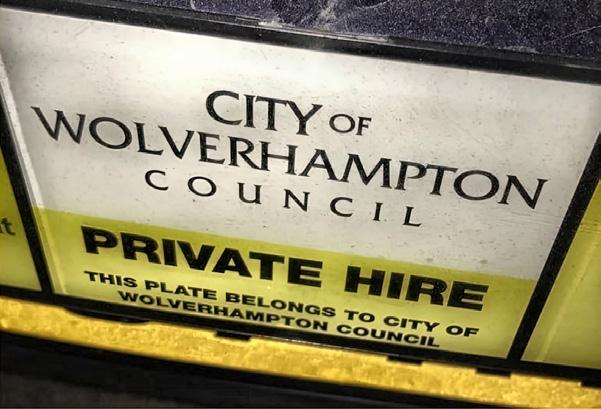

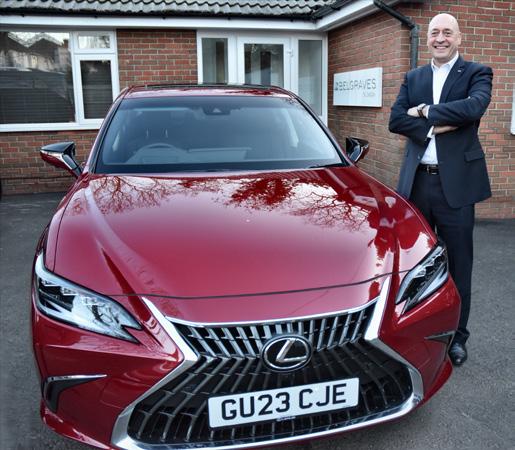
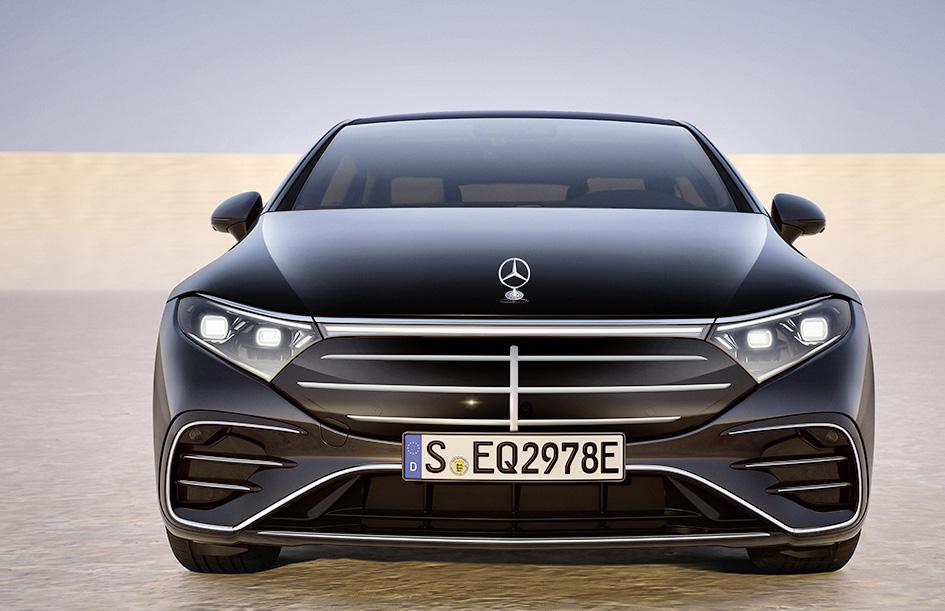
EDITORIAL DIRECTOR
Mark Bursa
07813 320044
markbursa@prodrivermags.com
COMMERCIAL DIRECTOR
Paul Webb
07807 133527
paulwebb@prodrivermags.com
CONTRIBUTORS
Gary Jacobs, Kevin Willis, Tim Barnes-Clay, Phil Rule, Kwabena Dennot Nyack, Dr Mike Galvin, Tim Scrafton
COMPANY ADDRESS
50 Beechcroft Manor, Oatlands, Weybridge, KT13 9NZ
WEBSITE
Martin Coombes PageHub Design
martin@pagehubdesign.co.uk
SUBSCRIPTIONS
Curwood CMS Ltd, The Barn, Abbey Mews, Robertsbridge, TN32 5AD 01580 883844
subs@prodrivermags.com
Registered in England No. 7086172
© 2024 All contents copyright of ProDriver Media Ltd
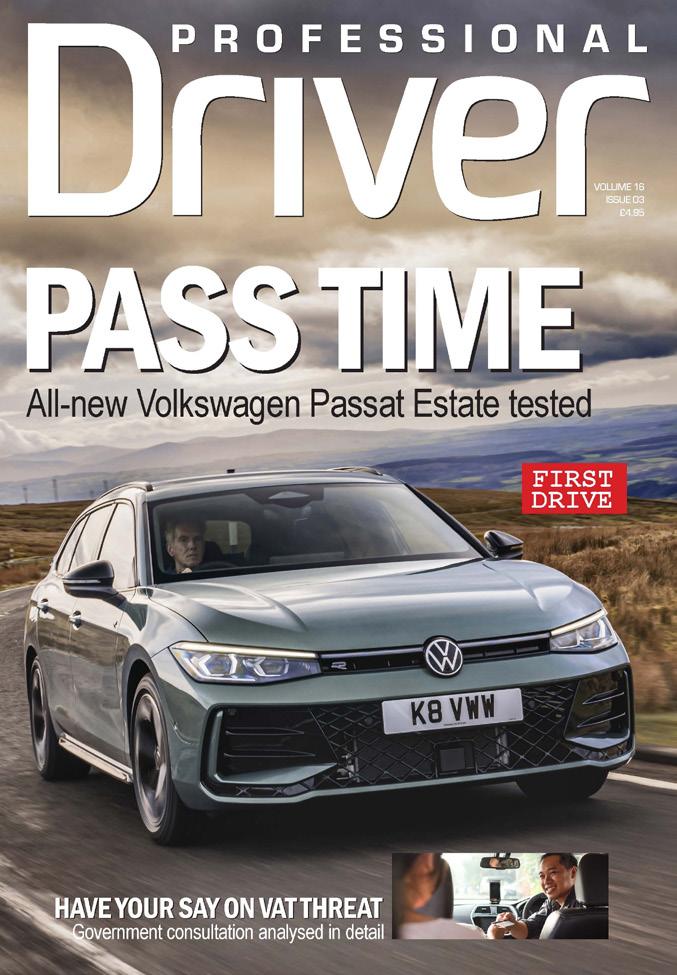

The private hire industry has experienced massive changes in the past decade. Ride-hailing apps have come from nowhere to become a dominant player in London and a major part of the landscape elsewhere.
Consolidation has seen the rise of major national groups with fleets running well into five figures. Electrification forces new challenges on to operators, who are now faced with expensive electric cars and a woefully inadequate approach to infrastructure in cities. On the major trunk routes you can get charged reasonably efficiently – but at a price.
There’s a general belief that these problems are fixable. Competition is natural in a market such as taxi and private hire, and it’s up to the operators to be smart and keep an advantage.
Even the EV transition is some way off becoming derailed. There are new technologies in the pipeline, particularly with regard to batteries. And affordable cars will come – they just might not be from familiar brands.
But there are underlying problems that are far from being fixed, and most of these relate to how the industry is regulated. We see it every month in the news stories we report from around the UK.
to cut corners on safety. It’s because they actually want a license quickly, and at a reasonable price.
Wolverhampton provides that. It has geared up to do that, and if Andy Burnham wants to stop Mancunian drivers heading down the M6, he should do what they do in Wolverhapton. Gear up the licensing departments in various Greater Manchester councils to match Wolves on speed of processing and cost.
The fear is that Andy Burnham will have the ear of the incoming Labour Government and the Deregulation Act could be at risk.
This would be a massively retrograde step. Cross-border hiring has far more pluses than minuses. It cuts dead mileage and allows a degree of flexibility to operators and drivers to maximise the jobs that are available.
Far better than fiddling about with an existing piece of legislation would be to look long and hard at the issue of national standards.
This has been kicked about for years, with no proper outcome. But surely the answer is simple? What makes private hire and taxi licensing so special that it can’t be treated the same way as bus, coach or truck licensing?
“
If Mayor Andy Burnham wants to stop Mancunian drivers heading down the M6, he should do what they do in Wolverhampton ”
Parochial stories such as the one on page 8, where a councillor in Bedford thinks a different coloured taxi light on a private hire vehicle is a good idea. The government disagrees, and has published some sensible guidelines to suggest that light = hackney and no light = PHV. But that’s not good enough for little Bedford.
This is the root of the problem. Local councils making up their own pettifogging rules that benefit nobody and inconvenience the operators and drivers trying to run a service. I bet the Bedford driver loves having to explain to a pissed-up punter why the green light on his roof means he’s not a “taxi” and therefore he can’t take you home. Cue torrent of drunken abuse and possibly violence.
Further up the food chain, we have one of Britain’s more sensible politicians, Manchester Mayor Andy Burnham, calling for the scrapping of the one piece of sensible legislation relating to this industry that has made it to the statute books in the past decade – the Deregulation Act.
Manchester drivers get their licenses in Wolverhampton not because they want
A PSV or HGV license is subject to far more specialist training than PHV or Hackney, yet it can be administered nationally. A driver with a PSV licence in Manchester can move to London and drive a bus there. There’s no big deal about it, and councils don’t get to make the rules or set the fees.
This should be the first stage of national PHV and taxi licensing. National standards and national prices. So it wouldn’t matter where the drivers obtained their licences. The market would decide – the most efficient, friendliest councils would get the business, and it would be up to the others to make their service better.
That way you could address all the nonsense about window tints, roof lights, magnetic signs and other nif-naf that obsesses the licensing jobsworths and makes your life difficult.
The consultation on VAT shows there is an level of intelligence there within the civil service on private hire – make sure you get your response in to this, as we have a good chance of avoiding 20% VAT.
Wouldn’t it be nice if we were in a position to make our own case to a new Government, and actually get somewhere?
A group of more than 10,000 London black cab drivers has launched a class action lawsuit against Uber, alleging the ride-hailing platform breached taxi booking rules between 2012 and 2018.
The drivers are suing for loss of earnings throughout the period, and the lawyers handling the case claim the drivers could be in line for payouts totaling £250 million, with each driver’s claim worth up to £25,000.
The drivers claim Uber misled Transport for London over how it operated its ride-booking system and therefore breached private hire licensing rules. They allege that the company allowed its drivers to accept bookings directly from customers, rather than going through a central system.
The cab drivers say that during this time they suffered losses as a result of having fewer customers as increasing numbers started
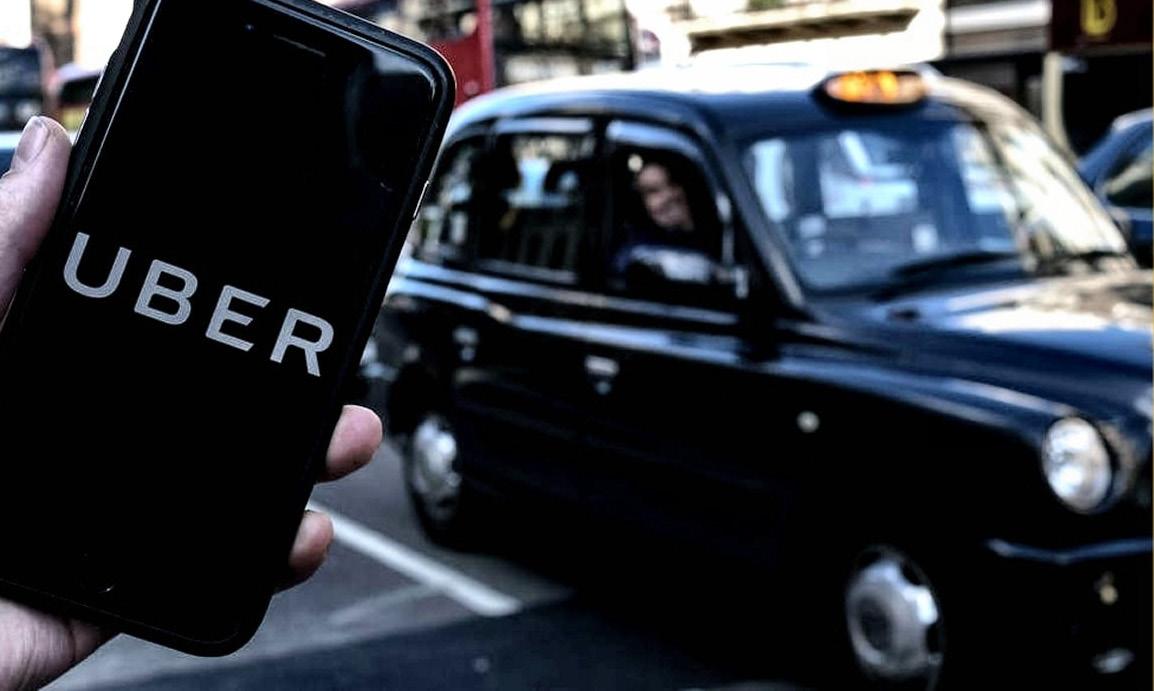
using the Uber app.
The group action has been filed on behalf of the cabbies by a company called RGL Management. The action is known as BULiT21, and the solicitor handling the case is law firm Mishcon de Reya.
An Uber spokesman responded to the claim, saying: “These old claims are completely unfounded. Uber operates lawfully in
London, is fully licensed by TfL, and is proud to serve millions of passengers and drivers across the capital.”
Michael Green, director of RGL Management, said: “RGL is pleased to file this claim form today on behalf of over 10,500 London cabbies, a major legal milestone in holding Uber to account for its failure to comply with the relevant
legislation in the UK’s capital. There are still thousands of cabbies eligible to join who have not yet done so. A cut-off date is fast approaching.”
He continued: “RGL therefore urges drivers to register with the BULiT21 legal action as soon as possible to join with thousands of fellow cabbies in the pursuit of losses suffered at the hands of Uber.”
Uber has re-applied for a license to operate in Aberdeen, having previously surrendered its license in the city in 2018. Matthew Freckelton (pictured), Uber’s UK Head of Cities, told the Aberdeen & Grampian Chamber of Commerce that he hoped Uber would be up and running by August. He also confirmed that Uber was looking to launch in Dundee as it revives its plans to launch in new cities following the collapse of the Local Cab scheme last year. The Local Cab service enabled users to book rides with local private hire operators through the Uber app.
In a recent podcast, Freckelton said:
“There’s a licensing committee meeting coming up in June. If we get granted the license in June, from the city launches we’ve done recently, it’s taken about a
month or two months before we have gone live. End of August, we’d be looking to go formally live.”
“Places like Aberdeen and Dundee are our focus in Scotland,” he added. Uber already operates in Glasgow and Edinburgh. The Aberdeen move follows launches in Swansea, Stockton-on-Tees and Hull.
However, the expansion plans have not been universally welcomed throughout the taxi and private hire industry.
particular area and we are usually with our customers within minutes.”
Aberdeen, like many UK cities, has struggled to attract private hire drivers. Numbers fell from pre-pandemic levels of 849 in 2020 to 605 at the end of 2022.

Qaiser Habib, president of the Dundee City Taxi Drivers Association, said: “Dundee is a small city and we actually have more taxis than needed in the taxi ranks. There are more than enough taxis in Dundee. There can often be 30-40 in one
Freckelton said Uber was happy for drivers to keep working for local firms while also doing Uber work. He said: “When we go live we will be taking from the existing pool of drivers and we think drivers will want to come work for us.”
He said Uber was targeting around 40 to 50 drivers from the existing pool of licensed drivers in the launch phase. “We fully support drivers being able to work for multiple operators in a city.”
Audi has revealed details of facelifted plug-in hybrid Q7 and Q8 SUVs with updated battery technology and more efficient driving modes.
The exterior design of both models has been reworked with new front and rear aprons, while both plug-in hybrids are available with optional all-wheel steering and electromechanical active roll stabilisation. Both models now have a larger liquid-cooled lithium battery located under the boot floor, offering greater range.
The 25.9kWh unit gives an electric range of up to 52 miles on the Q7 and 51 miles on the Q8 (pictured). The battery charges at up to 7.4 kW and reaches 100% in approximately 3hr 45min. The cars use a 3.0-litre TFSI six-cylinder petrol engine developing 340PS, alongside a compact electric motor, giving a combined system output of 394PS and 600Nm of torque on both Q7 and Q8 55 TFSI e quattro models.

Q7 or Q8 can be started in EV mode or hybrid mode, and the chosen mode remains active until manually changed.
Hybrid mode has two operating modes: auto and hold. In hold mode, the existing battery charge is kept at its current level by recovering braking energy. This allows driv-
ers to switch to all-electric power on reaching an urban destination. In charge mode, the battery recharges only above speeds of 40mph using recuperation alone. This ensures high levels of electric driving in stop-go traffic. Charge mode ends when the battery has recharged to 75% of capacity.
Mark Bursa
Addison Lee has called on newly re-elected London Mayor Sadiq Khan to use his mandate to make significant investments in electric vehicle charging infrastructure in the capital.
Addison Lee CEO Liam Griffin said: “While this outcome marks a vote of confidence in City Hall – an acknowledgement of important milestones achieved over the last term – there is still much more that needs to be done if we are to create a truly efficient and sustainable city for Londoners.”
“If the Mayor is to get anywhere close to meeting his 2030 net zero target, over the next term we must see significant investment to bolster EV charging infrastructure in the capital, alongside strong incentives that encourage the widespread adoptions of EVs.”
Griffin continued: “We

invite the Mayor to work more closely with representatives across the transport system – such as ourselves – to find the right solutions that support a green, accessible city for all.”
Khan comfortably defeated the Conservative candidate Susan Hall in the elections, which means any hope that the controversial Ultra Low Emissions Zone (ULEZ) scheme might be wound back has been quashed.
However, in his campaign to be re-elected, Khan included a substantial package of measures designed to offer enhanced rights and protections for the city’s 105,000 private hire drivers. He will be expected to make these happen during his third term as London Mayor.
During his campaign, Khan, said he would “stand up for hardworking drivers”, acknowledging the challenges faced by many drivers, including antisocial working hours and the risk of abuse or attacks.
Khan said he would establish a new PHV taskforce, comprising drivers, their representatives and major industry operators, in a bid to enhance working conditions across the sector.
The proposals include the creation of new driver hubs, designed to provide drivers with rest breaks and access to adequate facilities.
Khan also plans a ‘Re-
spect’ campaign aimed at raising public awareness about the drivers’ role and the challenges they encounter, and to help curb antisocial and aggressive behaviour towards drivers.
Khan said: “Professional drivers play an essential role in the economic fabric of our capital. They are here for us when we want them to be, and we should be there for them in return. It should be a given that drivers are able to make a living safely and in comfort, but too often they have limited access to facilities such as toilets or kitchens, and face abuse or violence simply for doing their jobs. Their concerns are too often ignored.”
Steve Garelick, GMB London lead officer, transport and logistics, said: “We welcome this range of measures which would make a big difference to the everyday lives of hardworking drivers.”
The Government’s decision not to adopt the recommendations in a House of Lords report to incentivise EV buyers could mean the EV revolution is “a non-starter”, according to the report’s author.
The upper chamber’s Environment and Climate Change Committee published a report earlier this year, titled ‘EV strategy: rapid recharge needed’, in which it called for incentives to encourage car buyers to go electric.
But the Government’s response was to dismissing the House of Lords’ suggestion that it should re-introduce the plug-in car grant (PiCG).
And it rejected the suggestion to equalise the VAT differential on public charging, maintaining the current rate of 20% compared to the 5% rate for domestic chargers.
Baroness Parminter, chair of the inquiry said: “It is particularly disappointing that [the government] is not committing to incentivising the purchase of more EVs, equalising the VAT differential between public and domestic charging, or addressing concerns about

Baroness Parminter: ‘Peers will keep urging the government to do more, as otherwise the EV revolution is a non-starter’
barriers to charging in multi-occupancy buildings.”
She continued: “If implemented, these recommendations would help people to adopt EVs and ensure a smoother journey towards net zero. Peers will keep urging the government to do more, as otherwise the EV revolution is a non-starter.”
In the report, Baroness Parminter wrote: “The evidence we received shows the government must do more to get people to adopt EVs. If it fails to heed our recommendations, the UK won’t reap the significant benefits of better air quality and will lag in the slow lane for tackling climate change.”
Instead, the government maintained that the Zero Emission Vehicle mandate alone would drive EV uptake. This mandates that 80% of new cars and 70% of new vans sold in Great Britain must be zero-emission vehicles by 2030, with a further push towards 100% by 2035.
The decision has drawn criticism from the auto industry. Fiat UK managing director Damien Dally said the government was “sleepwalking” into an electric vehicle crisis, adding: “With confirmation that no electric car grant is going to be reintroduced, we would say the government is now well and truly on the cusp of that crisis,” he added. With fewer than one in five cars registered this year being EVs, the market is in “real jeopardy”, he added.
Mazda UK managing director Jeremy Thompson said: “We need to change the narrative around EVs, from range to usage and encourage home charging installation, better public charging infrastructure as well as government incentives that consider cost throughout the ownership cycle.”
Jon Lawes, managing
director of fleet operator Novuna Vehicle Solutions, said: “After sluggish EV adoption in March and a year of mixed messages on net zero, the Government had a chance to reset the narrative.”
“Instead, it was a missed opportunity. Policymakers have shied away from the fundamental issue of boosting consumer accessibility. This was a chance to get the EV transition back on track with a package of measures, but purchase grants, a VAT cut on public charging and support for the second-hand market were all ruled out.”
The Government ruled out the VAT change on the grounds that it would “impose additional pressure on the public finances to which VAT makes a significant contribution”.
The PiCG grant was launched in 2011, initially offering £5,000 off the price of EVs and plug-in hybrids. It was steadily downgraded to just £1,500 and was axed completely in 2022. The report said bringing the PiCG back would stimulate the “affordable EV market” and should be in place until price parity between EVs and ICE cars was achieved.
Bedford Borough Council has rejected calls to do away with roof sign requirements for private vehicles, claiming they were a “community safety issue”.
In the town, hackney taxis have yellow lights while PHVs have green ones. But David Masih, owner of local private hire firm Ezee Cabs, told the council’s general licensing committee that having any signs on PHVs was contrary to Department for Transport policy.
He told the committee that the updated
DfT rules state: “Licensing authorities should not permit roof signs of any kind on private hire vehicles. Regardless of the wording required on such a sign it is likely to increase awareness of the vehicle and the likelihood of being mistaken for a taxi.”

Masih said: “Having an illuminated sign on taxis and prohibiting them from private hire vehicles will provide a simple way for
the public to differentiate between the two services. It seems roof signs are more of a costly hindrance and of almost no benefit to the ride users.”
But Gillian Anderson, manager for service application, said: “My view remains that the roof signs are a community safety issue and they do help vehicles be identified."
Leeds-based chauffeur operator Privilege Executive Cars has acquired local rival Elite Voyager Chauffeur Travel.
The deal adds eight chauffeurs to the 30-strong Privilege team of over 30 chauffeurs, and adds six more vehicles to the company’s fleet of Mercedes-Benz S-class, E-class and V-class vehicles.
“This acquisition will further increase our presence in the industry while expanding our client base, executive fleet, and chauffeurs to further provide a quality, safe and professional service,” said Paul Watson, Privilege Executive Cars founder and managing director (pictured, centre).
“We look forward to working with all our new clients and chauffeurs alike as they become part of the Privilege Executive Cars family,” he added.
“The latest addition to Privilege would not be possible without the support of Leeds City Council licensing team, the hard work of our team and the continued support of all our loyal customers for which we are very grateful.”

Mark Bursa
York Council had no right to impose additional conditions on a private hire operator looking to use drivers licensed in neighbouring cities, Harrogate Magistrates Court has ruled.
In a case that has implications for cross-border hiring, District Judge Adrian Lower ruled that taxi operator 57 Taxis, trading as Drive, and its owner Christopher Hall, would be allowed to use drivers from other Driver-owned businesses in different towns to fulfil York jobs, as the Council had found the company and Hall “fit and proper”.
Judge Lower ruled that imposing additional conditions on Hall’s operator’s license, were against the principles of natural justice, as they were imposed without notice, consultation or a right to respond, and were imposed after the license had been granted.
York Council had argued that the conditions, which
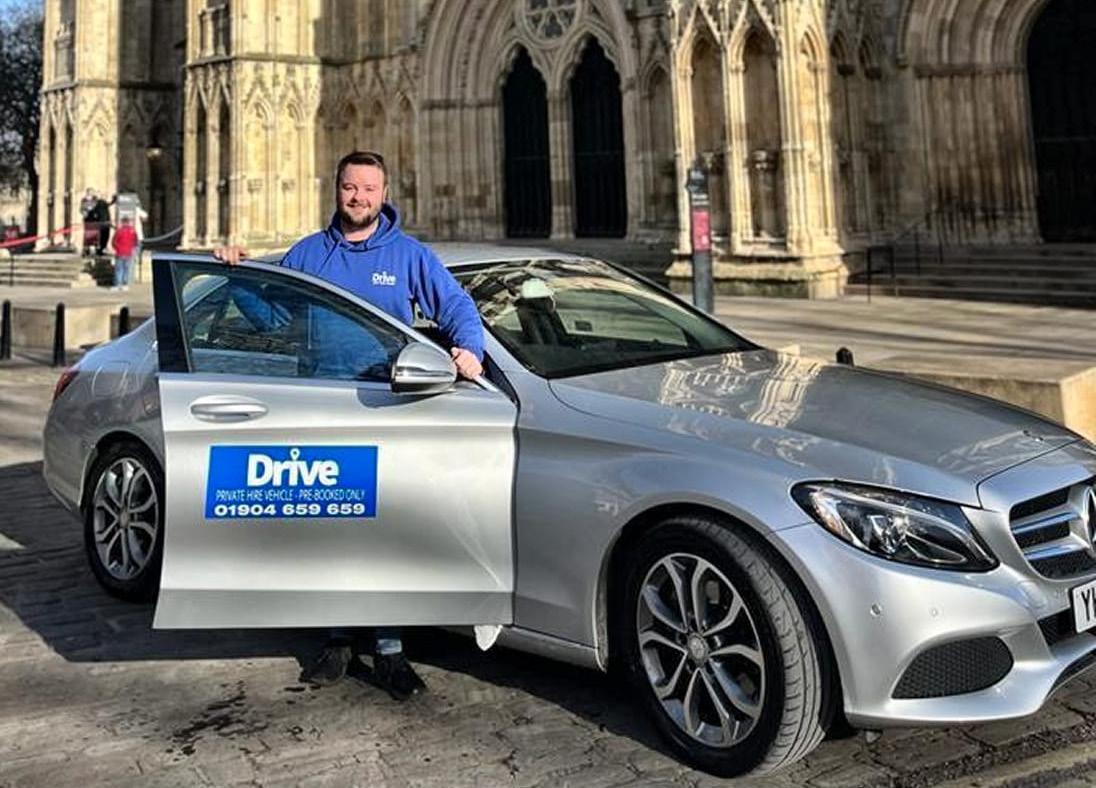
included having to ensure that any drivers taking on York jobs had taken York’s “Safeguarding and Knowledge test” were in the interests of public safety. But Hall argued it left Drive at a disadvantage and his business at a disadvantage.
Judge Lower ruled that the supplementary conditions were contrary to the provisions of the Deregulation Act 2015, which allows cross-border hiring. He revoked the conditions, and ordered York Council to reimburse the Hall’s legal
expenses of £18,500.
Judge Lower said: “The Appellants were afforded no opportunity to make any representations about how those additional conditions would affect their business in advance of the decision letter. As a result, their representations have taken the form of this appeal. This, in my judgement, is a clear breach of natural justice. There has been no reason advanced before me as to why the committee could not have invited further representations
by the Appellants before making their decision as to the reasonable necessity for the Additional Conditions to be added to the operators’ licences granted to the Appellants.”
The judgement supports the right of operators to use the deregulation act to offer jobs to drivers who are not licensed in the area. In the case of Drive, the regional group entered the York market after taking over the business of 659 Private Hire, which operated with 70 drivers under the terms of its license.
Drive’s plan was to expand by offering additional jobs under the Deregulation Act’s “right to roam” provisions to drivers working for other Drive companies licensed in other towns such as Hull and Doncaster, using the Drive app.
The ruling suggests that councils cannot arbitrarily introduce conditions that run contrary to the Deregulation Act, providing the operator is deemed “fit and proper”.
Mark Bursa
Israeli parking payments app Pango has acquired ride-hailing app Gett in a deal worth $175 million (around £140m) – a fraction of the company’s $1.4 billion ($1.17bn) valuation in 2018.
Pango is buying the shares from a number of private venture capital investors, including Swedish-based Vostok New Ventures Ltd (VNV), Access Industries and MCI Capital.
VNV confirmed it was selling its 43.4% holding in Gett for a net $83m (£66m), representing an 11.2% discount to the value of the stake as of March 31. Gett underwent a financial restructuring in 2022, resulting in it being debt free, with VNV Global as the largest shareholder.
Pango intends to keep Gett as a separate ride-hailing and delivery business. Gett was founded in Israel and operates there as well as in the UK, where it
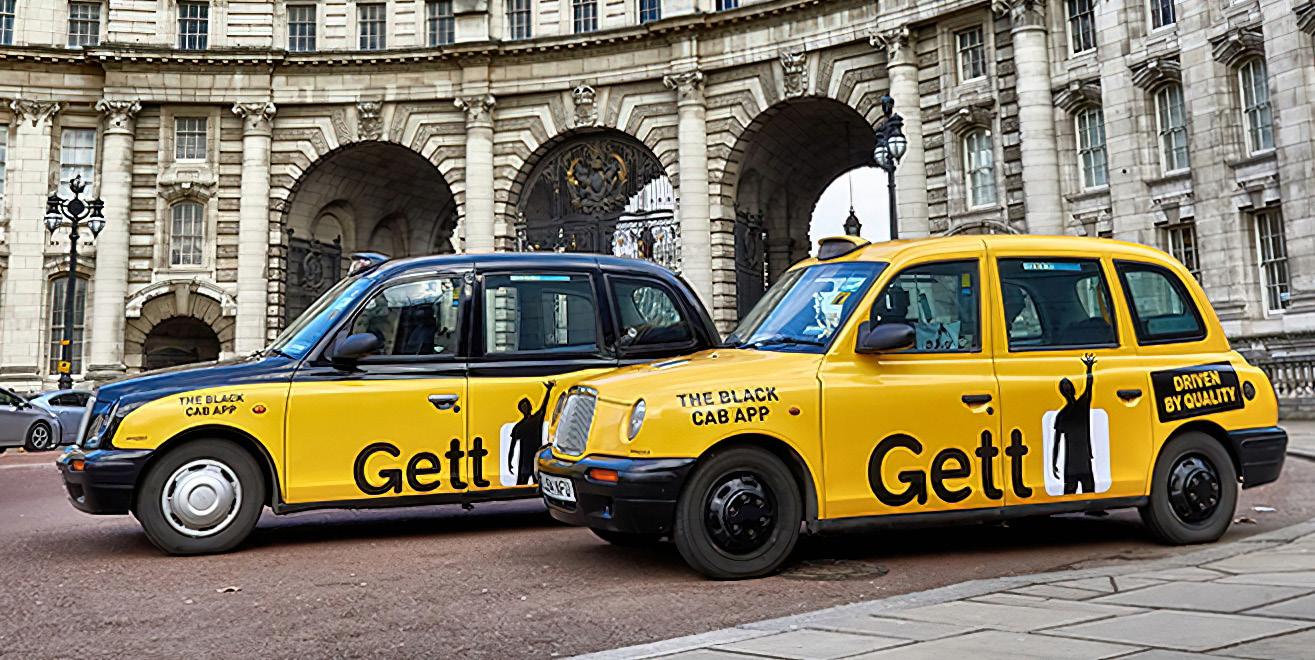
Pango CEO Jonathan Alon said he believed Gett had “exceptional business potential”.
“We are proud to sign an agreement for the purchase of an Israeli company by an Israeli company and see this as a vote of confidence in and strengthening of the Israeli economy, especially during these times,” he added.
“We have significant
plans for further development of the company in its fields of expertise.”
Founded in Israel in 2010 as Get Taxi, Gett was one of the first taxi apps to hit the market. The company raised around $900 million in funds from investors, including Volkswagen Group.
But the company has struggled against more aggressive competitors such as Uber and FreeNow, and its valuation has plummeted from $1.4 billion in 2018.
VW wrote off its investment of more than $300m after its value fell to just $16m in 2019.
Gett’s 2023 results were impacted by the Israel-Palestine conflict, though volumes in Israel have rebounded to 95% of pre-war levels. Gett was also last year awarded the contract to run the taxis at Tel Aviv airport. The deal will be completed on approval from the Israeli competition authority.
A group of Veezu taxi drivers in Sheffield have staged a protest outside the company’s offices in a row over pay.
Veezu moved into Sheffield last year with the acquisition of dominant local operator City Taxis, which employs almost 2,000 drivers, and the national group is now trying to introduce new working conditions.
Drivers are unhappy with Veezu’s plan to bring in a new sliding scale of commission based on how many jobs each driver completes, which they say is putting too much pressure on them.
The drivers say Veezu takes between 12% and 35% commission on fares and has recently reduced prices to entice customers. One driver told local media: “This unfair commission structure means we have to work extra hours just to maintain the main earnings we currently have. The fare decrease means you are working for longer,

you are earning less but you are paying a higher commission to the company.
The drivers want Veezu to factor in the rising cost of fuel, insurance and car maintenance.
“It feels like the company does not regard drivers as partners in the same businessnot working as a team, but working against each other.”
Veezu maintains the drivers are self-employed, and can work for other operators if they choose. A Veezu spokesperson said: “As self-employed individuals in business, the drivers operate across several different licensed operators in Sheffield and can decide which operator they use.”
“Several of the drivers have proposed commercial terms which Veezu is considering and will be discussing with them in the coming weeks.”
“Veezu hopes that the drivers continue to operate via our system, but we recognise this is a commercial market and that drivers will choose to drive with different and multiple operators.”
Meanwhile, Veezu’s Leeds subsidiary Amber Cars has become the latest to adopt full Veezu branding as the company continues to roll out its national brand across all its major hubs.
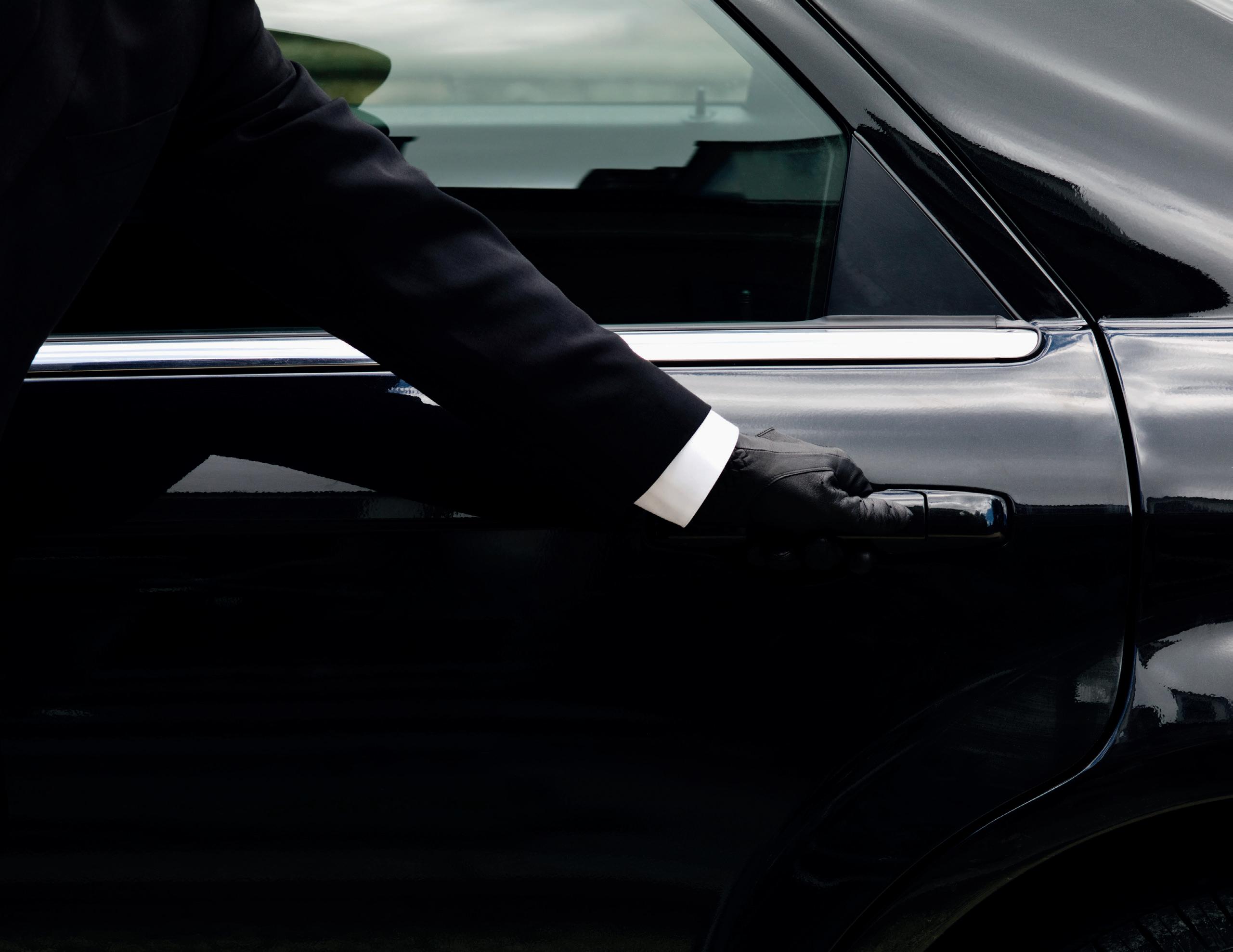

South coast private hire operator Cab My Ride has been stripped of its license by Southampton Council after the Council’s licensing sub-committee found the business was not “fit and proper”.
Cab My Ride will be able to keep its licence with the two neighbouring authorities of Eastleigh Borough Council and New Forest District Council as no complaints were lodged with either authority and the councils have confirmed no action is being taken against the firm.

action taken by Southampton City Council who seek to revoke Cab My Ride’s Southampton license.
“It is also worth noting that when the Southampton Licencing Team performed spot checks on vehicles on 27th February 2024, Cab My Ride’s vehicles were not associated with the 87% failure rate from other taxis and their operators.”
Southampton City Council revoked Cab My Ride’s license after a number of issues were raised. These included wheelchair users being overcharged, children being driven to and from school in an unlicensed and damaged vehicle and questions about the conduct of a former director, who resigned in 2020.
Cab My Ride said it would appeal the Southampton decision. A spokesperson for the company told local media said: “Cab My Ride are pleased with Eastleigh Borough
Council’s and New Forest District Council’s decision not to revoke our license. The recommendation put forward by the Southampton City Council, to revoke our Southampton Private Hire Operators License, will be appealed at the West Hampshire Magistrate court at a later date.
“As a legal and fully licensed Southampton, Eastleigh and New Forest Private Hire Operator, we are still able to provide services to take passengers in the city and provide transport services.”
Director Arjan Sahota said: “We commend Eastleigh Borough Council and New Forest District Council for their commitment to assessing the facts, rather than following the unfair
Cab My Ride has been acquisitive in recent times, buying two other local operators in 2022 and building a fleet of around 300 cars. In January 2022 it bought Hampshire operator Bitterne Cars, and in October 2022 it bought 70-car operator Millers Taxi, which operates in the Eastleigh, Fareham and Winchester area Sahota said the company’s expansion was partly to blame for the problems. Addressing Southampton councillors, he said: “I understand there have been mistakes over just a few years. I can only apologise on behalf of the company,” adding that he was “working hard to make things right and to gain the trust that the Council has given us to serve our local community in Southampton”.
Private hire drivers have protested outside New Forest District Council’s offices in protest at proposals to change taxi licensing rules.
The Council is proposing changes to the application process, ages of vehicles used, DBS checks and signage. But drivers protested outside the Council’s Lyndhurst offices, demanding “a fair say at the table”.
Driver Jason Kauder, who organised the protest, told local media the Council had been in discussion with some taxi operators but that ride-hailing app drivers were not represented.
Under the proposals, NFDC wants to introduce self-adhesive identification signs to the rear passenger doors in order for passengers to identify vehicles more easily. But Kauder said this would prevent app drivers from working for multiple operators.

The drivers are also against changes to the age of vehicles used by drivers. If approved, all petrol and diesel cars must be less than five years old at the time of first licensing. All hybrid vehicles must be less than seven.
Further changes would come into effect in January 2026, when it is proposed that only vehicles less than 10 years old will have licenses renewed. Fully electric vehicles would be exempt.
Kauder called on the council to follow Department for Transport guidelines, which were issued last November. These state: “Licensing authorities’ private hire vehicle signage
requirements should be limited to the authority licence plate or disc and a “pre-booked only” door sign.”
The guidance also states licensing authorities should not impose age limits on vehicles but “should consider more targeted requirements to meet their policy objectives on emissions, safety rating and increasing wheelchair accessible provision where this is low”.
Taxi drivers in Powys will be subject to DBS checks every six months. The council’s Democratic Services committee said the change was required for drivers to comply with guidance issued by the Welsh Government and the UK Department for Transport.
Powys council’s head of legal and democratic services, Clive Pinney said drivers must take an annual subscription to the UK Government’s DBS Update service, which costs £13.
If the drivers don’t follow the new six monthly DBS requirement, they could have their license suspended.
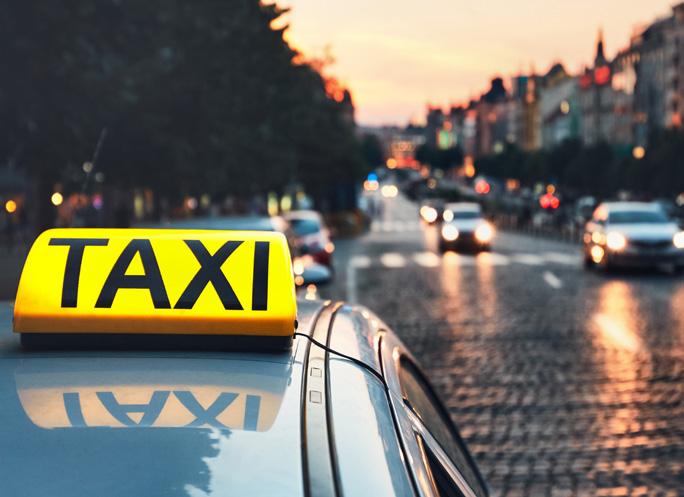
Liberal Democrat councillor Claire Hall said she thought the change from annual to six-monthly DBS checks was: “a bit onerous for paperwork”, but agreed with
the change after Pinney explained that the objective was “safeguarding members of the public who use taxis”.
Pinney added that the other licensing requirements would continue on a three-yearly basis. Powys has also introduced revised taxi license fees for 2025.
A 12-month hackney carriage / private hire license has gone up to £150 from £146, while a three-year driver license is now £284, up from £270.50 this year. However, the cost of a 5-year private hire operator’s license has gone down to £355 from £358 this year. These charges do not include DBS fees.
The extent to which Wolverhampton has become the UK’s taxi capital has been revealed by new licensing data from private hire insurance provider Zego.
In the 12 months from April 2023 to March 2024, Wolverhampton Council issued 32,169 Private Hire Vehicle licenses, a rise of nearly 8,000 from 24,375 the previous year. This gives – on paper – Wolverhampton the greatest density of PHVs per head of population, at 85.3 vehicles per 1,000 people. This figure is five times higher than the second-placed location, Newcastle-upon-Tyne.
But earlier data reveals that 95.5% of drivers applying for a Wolverhampton license do not live there, and are merely taking advantage of the city’s lower costs and faster processing to obtain a license, which they then use to operate legally in other towns such as Birmingham or Manchester. In 2023, Wolverhampton Council issued licenses to 20,375
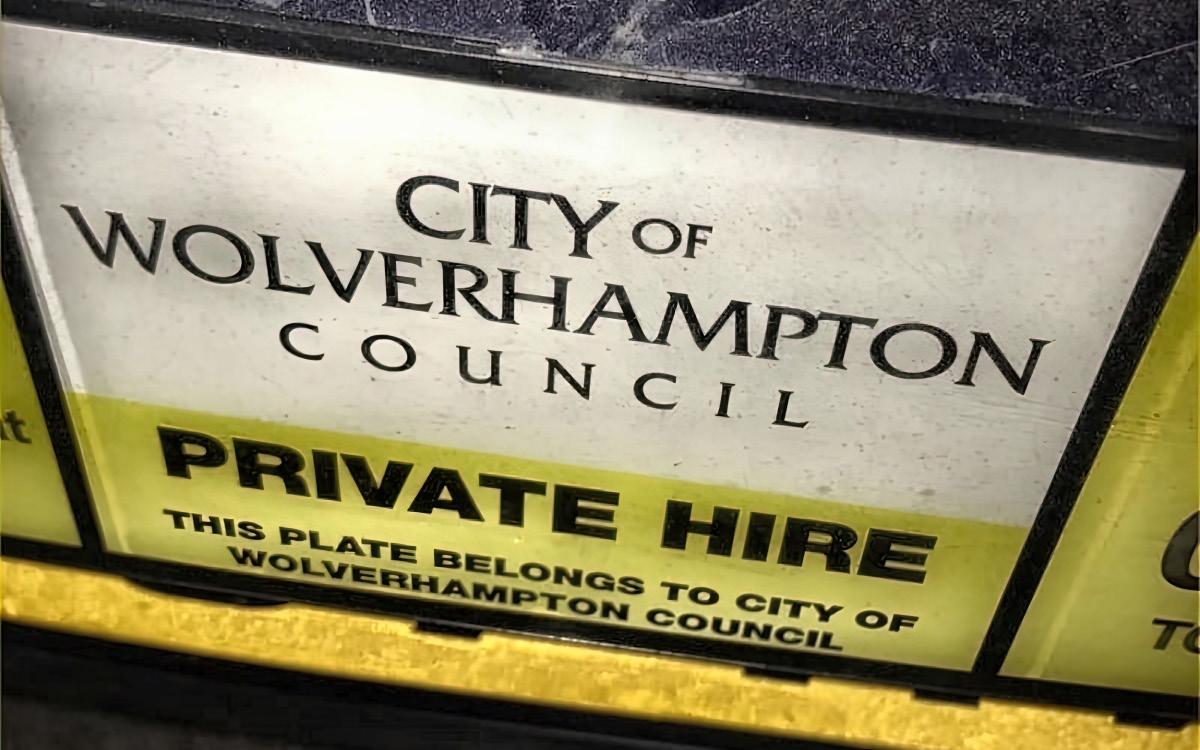
drivers living outside Wolverhampton, with only 813 licenses for local drivers.
This cross-border operating principle is enshrined in the 2015 Deregulation Act, though dissenting voices –including Greater Manchester Mayor Andy Burnham – have called for the act to be overturned.
Data revealed in 2023 showed that nearly 9,000 drivers with Wolverhampton licenses lived in Greater Manchester, citing a significant price difference between authorities.
In 2023, Manchester City Council was charging £255 to register as a new private hire driver, plus costs for
tests, and between £222 and £342 to register a vehicle, depending on age.
Wolverhampton Council’s application fee for a new private hire driver was £49 for a one-year license or £98 for a three-year license, while it cost just £95 to register a vehicle under 10 years old.
Last month, a Transport for Greater Manchester spokesperson said: “A change in the law is required to make sure that anyone who drives or operates a taxi or private hire vehicle in Greater Manchester meets high safety standards and is licensed in our area.”
However, a Wolverhamp-
ton Council spokesperson said: “While Wolverhampton Council has never actively encouraged applications from drivers outside the city, existing legislation requires that if an application is submitted and requirements are met, then the application must be granted. The council may not refuse an applicant simply because they live in a different area and it is illegal for licensing authorities to impose a limit on the number of private hire licenses it issues.”
The spokesperson continued: “Our early adoption of digital technology has allowed us to offer a simple and efficient online application procedure, with the requirement that drivers attend in person for training and strict assessment before an application can be processed. Public safety is of paramount importance to us. We expect drivers and vehicles licensed by us to always maintain the highest standards. This is irrespective of the administrative boundary within which they are operating.”

The Government has launched its promised consultation over whether or not VAT should be applied to private hire journeys. The consultation, which opened on April 18, 2024, will run for 16 weeks, ending on August 8, 2024.
It comes in the wake of two court judgments that have brought the question to the fore: a December 2021 London High Court judgment on the PHV sector and its passengers, and the July 2023 Uber Britannia Ltd v Sefton Borough Council High Court judgment.
The Sefton ruling made it clear that the passenger’s contract was with the Operator, not a self-employed driver working for the operator. However, in making the ruling, the judge expressly distanced it from the question of whether or not VAT should be levied.
Commenting after the Sefton ruling, Eazitax’s Gary Jacobs said: “The judge’s ruling explicitly stated that the VAT consequences of changing the operating model were irrelevant to the case,” he said. “This meant that the court’s decision did not hinge on po-
The Government has launched its VAT consultation on private hire fares. The stakes are high, but the industry needs a united voice in order to head off the unwanted ‘taxi tax’. Mark Bursa reports
tential changes to the VAT obligations of ride-sharing platforms.”
It was argued that as most individual drivers have an annual turnover well below the VAT threshold (£90,000 as of April 1, 2024), journeys would not be liable to VAT if the contract was with the individual driver.
“It is mandatory for those operating above this threshold to register for VAT and to charge 20% VAT on the PHV services that they provide,” the consultation document states. This means that, in practice, most operators’ turnover is well in excess of the VAT threshold, and if the contract is with the operator, the journey should be subject to VAT.
However, other forms of transport, such as hackney carriages, buses and trains, do not charge VAT for travel –so opponents of VAT charges believe
the same rule should apply to private hire.
This is the question that the consultation seeks to answer. The stakes are high: if drivers were allowed to contract with passengers as principal on all their work, without the operator playing a role, the government believes around £750 million per annum in VAT would not be paid to the Exchequer.
Subjecting PHV services to a reduced rate of VAT (5%) would be expected to cost the Exchequer around £1 billion per year, while zero rating PHV services would be expected to cost the Exchequer around £1.5bn per year. This actually represents a significant percentage – almost 1% –of the total VAT revenue collected in 2024/25, which is forecast to reach £176bn. HMRC is not going to give
up this income without a fight.
It should be noted that HMRC is not currently receiving anything like this amount, as current rules, certainly prior to the Sefton ruling, mean most private hire operators have interpreted the relationship between driver, customer and operator in such a way as to avoid VAT. Most operators claim they act as an “agency” for self-employed drivers, acting as a platform that provides work in return for a cut - and under that model the contract is between driver and customer, and as the drivers are in general not VAT-registered, VAT is avoided.
The wording of the consultation document appears to have a degree of sympathy toward the trade, stating: “This consultation also invites views on potential government interventions that could help to mitigate any undue adverse effects that these judgments could have on the PHV sector and its passengers.”
“When evaluating potential interventions, the government has considered the impact on vulnerable consumers, the fiscal impact it would have on the Exchequer, and the degree to which it would promote fair competition between PHV operators.”
In the absence of any firm ruling on VAT, operators have taken a variety of approaches. Some, notably Addison Lee, have simply charged VAT at the full 20% on all journeys. Addison Lee argues that the overwhelming bulk of its client base are business customers, and thus are likely to be VAT registered. So any VAT charged on fares would simply be reclaimed through the company’s own VAT return.
The government acknowledges that this “account work” is liable for VAT and states in the document that it is outside the scope of the consultation – so it appears that VAT will still be charged at 20% on some fares.
Other operators, notably ride-hailing operators such as Uber and FreeNow, have used the Tour Operators’ Margin Scheme (TOMS) to reduce the VAT charged to just the operator’s cut of the fare. So if a driver took a £100 fare via one of these platforms, VAT would only be payable on the commission paid to the platform – say 20%. So HMRC would receive 20% of £20 - £4 – rather than £40 if VAT was charged at 20% on the whole fare. Furthermore, if VAT was chargeable
on all fares, the operator would have no choice but to raise fares – which would hit vulnerable customers the hardest.
Another recent court case appeared to back use of the TOMS as perfectly reasonable. In December 2023, ride-hailing operator Bolt won its appeal against HMRC over whether private hire operators are eligible to use the TOMS.
Ruling in favour of Bolt, Tax Tribunal Judge Greg Sinfield KC said: “I have decided that the mobile ride-hailing services supplied by Bolt are services of a kind, namely passenger transport, commonly provided by tour operators or travel agents and the supply of such services falls within
scope of the TOMS.” The dispute concerned the amount of VAT due on the supplies of ride-hailing services made by Bolt as ‘principal’.
Judge Sinfield said: “There is no dispute that supplies of ride-hailing services are chargeable to VAT at the standard rate.”He ruled that Bolt should not account for VAT on the total amount paid by the customer. Instead it should charge VAT only on the margin (the difference between the amount paid by the customer and the cost to Bolt of goods or services supplied by taxable persons and used directly to provide the service).
However, the government is directly

The government has considered the impact on consumers, the Exchequer, and the degree to which it would promote fair competition between PHV operators “ ”

The big decision is whether to push for a zero-rated VAT regime or whether to go down the route of a TOMS-style commission scheme “ ”
CONTINUED FROM PAGE 15
at odds with this ruling, and this could prove pivotal to the final decision. In the consultation document, the government states its position: “It is important to note that the government’s position continues to be that TOMS does not apply to the PHV sector.
As such, HMRC will challenge PHVOs that account for VAT under TOMS, which was not designed to be used by this sector.” Conflict between the government’s position and Judge Sinfield’s opinion could be crucial in making a final decision.
The government confirmed that under current legislation, private hire fares are subject to VAT, providing the provider is VAT registered. The document states: “PHV services provided by VAT-registered businesses are, and always have been, subject to the standard rate of VAT (20%). Taxis are also subject to standard-rate VAT.
This differs from transport designed to carry at least 10 passengers (such
as buses and trains), which is subject to VAT at the zero rate. This zero rate is intended to incentivise the use of higher-volume transport services, thereby helping to reduce congestion and vehicle emissions.”
The consultation outlines a number of possible courses of action, most of which are complicated and have knock-on effects, made worse by the effects of the recent court rulings.
Solutions include changes to the VAT regime – including the optimum solution of zero-rating PHV fares in line with bus and train fares, or charging a reduced 5% rate that would have a minimal material effect on fares, and would obviate the need for the use of the TOMS scheme.
Other changes to the legal status of operators and drivers also carry complications. For example, the government suggests that the operator could act as “principal” in terms of the contract with the customer, but could continue to act as “driver’s agent” for the purposes of VAT. This is a solution
that could end up in a lengthy court case. “VAT is litigious,” the government admits.
The consultation also suggests a similar scheme to TOMS could be introduced specifically for the private hire sector.
This could provide a “magic bullet” compromise solution, though HMRC would still have to swallow a substantial loss or VAT revenue.
The document states:“The government could introduce a new margin scheme specifically for the PHV sector that would allow PHVOs to account for VAT on the margin between the passenger fare and the driver’s commission fee.
This would allow TOMS to remain targeted at tour operators as intended (thereby limiting the risk of boundary pushing), while recognising the potential benefits of a margin scheme for the PHV sector as an administrative way to reduce their VAT liability on PHVO supplies.
“A margin scheme would prevent

PHVOs from claiming back any input VAT they pay on the services they buy in and resupply to passengers. However, it would limit the effective rate of VAT to 4-5% of the full fare, as opposed to the standard 20% rate of VAT on the full passenger fare.”
A new margin scheme would be less complicated than TOMS, making for simpler calculations calculation, and it could be optional. Operators adopting it would have to adapt accounting processes to accommodate it.
It’s vital that the industry has its say, and makes its case powerfully and succinctly. The 37-page document is long and rambling, even going into a lengthy discussion of the 2014 Law Commission report, and whether or not a two-tier Hackney/PHV system should be maintained.
The Law Commission report predates the arrival of ride-hailing, so why it is considered relevant here is something of a mystery – though it must be borne in mind that our industry is regulated by rules that are in
many cases outdated. Make sure you address these points in your response. While the legal framework for the sector does need updating, it doesn’t need piecemeal changes based on outdated data.
The nature of a consultation is to gather a breadth of views. The industry has a number of choices to make. Heading off the threat of a blanket imposition of 20% VAT is imperative, and HMRC's protestations that it will lose billions as a result should be taken with a large pinch of salt. HMRC would gain vastly from 20% VAT, but right now, it's managing well enough without that money.
The big decision is whether to push for a zero-rated VAT regime or whether to go down the route of a TOMS-style commission scheme that would have a far smaller impact on fares, and would give the a revenue stream to HMRC at rreduced levels. As the government has suggested this, it must be a under consideration.
The argument that buses and trains are zero-rated as they somehow are more virtuous than a PHV is clearly nonsense. PHVs have been among the cleanest part of the vehicle parc for years thanks to the use of hybrids.
And with fleets switching to electric cars, the emissions argument in favour of buses disappears. And as PHVs demonstrably take private cars off teh road, their overall impact on congestion is positive too.
Indeed, the poor standard of bus services has meant PHVs provide a public transport service. How else does the elderly pensioner visit a sick relative in hospital, or the struggling parent without a car carry out a weekly supermarket shop for a large family? Adding VAT to fares would hit these most vulnerable members of society the hardest.
The consultation can be found here: https://www.gov.uk/government/ consultations/consultation-on-the-vattreatment-of-private-hire-vehicles
Responses to the consultation should be sent by August 8, 2024 via post to: HM Treasury, VAT & Excise Team, 1 Horse Guard’s Rd, London, SW1A 2HQ or via email to: phvovatconsultation@hmrc.gov.uk
The government will publish a formal response to this consultation in due course.
Protecting the public must be paramount, says the lawyer who fought against Uber’s bid to make all private hire journeys subject to VAT in the Sefton case.
Layla Barke-Jones, dispute resolution partner at Aaron & Partners, who represented Sefton Council in the case, welcomed the consultation, saying: “In the wake of the judgment, we called for Government intervention to prevent the unwanted consequences of this case, so we’re pleased to see it’s begun.”
“The case threw up a number of uncertainties and concerns which we highlighted to the High Court and continue to emphasise. This has led our client to appeal the case and happily now caused the Government to consult on steps that can be taken in licensing or VAT legislation to prevent the impact on consumers and businesses.”
“We share the Government’s objectives of supporting vulnerable consumers who rely on the services of taxi firms, maintaining the safety that the licensing regime provides and promoting fair and open competition for private hire businesses. We have particular concerns around the impact on vulnerable passengers caught in the crossfire who are left paying the price, quite literally, of Uber’s decision to bring the case and seek a declaration forcing VAT on to passengers.”
“The outcome of the consultation needs to be fair so that both passengers and operators are protected. What the consultation recognised is that there is particular impact on those regions in England and Wales outside of London where private hire operators have provided services under the current licensing regime for the last 47 years, using a range of models."
“The business model that Uber use means they must charge VAT, however this is not the only model and many operators use a model which does not require them to charge VAT to their passengers."
"We welcome the reassurance from Government that those operators who, unlike Uber, do not charge VAT to their passengers due to the business model they use, will not need to add VAT to their fares while the consultation is ongoing.”

Volkswagen Passat Estate R-Line 1.5 eTSI
For a while, it looked like the big estate car was following the large saloon down the highway to oblivion, The likes of Ford Mondeo and Vauxhall Insignia had reached the end of the line, as the twin trends toward electrification and SUVs continue to dominate car design.
Indeed, estates had become so thin on the ground that in the 2023 Professional Diver Car of the Year Awards, we couldn’t award an Estate Car of the Year – there simply were too few available to assemble a meaningful shortlist.
But this year there’s been a surprising station wagon comeback. Mercedes-Benz has unveiled a new E-Class estate, while BMW’s new 5-series range comes with a Touring version, including an electric i5 estate. The Skoda Superb and Octavia get another few years at least with facelifts recently announced.
And now here comes Volkswagen, with two new estates – an all-electric ID.7 Tourer, and this, the ninth-generation Passat, which rather surprisingly only comes as an estate – there’s no saloon version. It’s been a long time since Passat was a major seller in the UK – last year just 1,572 were registered in the UK. But there’s still demand, and

the private hire market represents a good chunk of Passat sales, as the car is ideal for work such as airport runs.
It might come as a surprise that Passat is now, following the end of Beetle production, VW’s longest-serving car brand. More than 50 years have passed since the original Passat debuted in 1973, a year ahead of the first Golf and two years before the first Polo, and VW has built a staggering 34 million Passats in the past 51 years.
Since it announced its electrification strategy in 2019, VW has maintained parallel model ranges – ID models are strictly electric; legacy brands are IC engined or hybrids. But the lines are starting to blur, and VW has more recently announced that the Golf and Tiguan brands will continue indefinitely – suggesting that electric ‘legacy brand’ cars will figure in the future VW range. So Passat may yet live on beyond the 2035 cut-off.
The new B9 Passat is built on the latest version of Volkswagen Group’s hugely successful modular transverse matrix platform, MQB evo, which also forms the basis of the new Tiguan SUV.
The new Passat has grown, making it the roomiest
CONTINUED ON PAGE 20

CONTINUED FROM PAGE 19
Passat yet. The 2,841mm wheelbase is 50 mm longer than the previous Passat Estate, and the new car is 144mm longer than before at 4,917mm and 20mm wider at 1,849 mm. This results in 50mm more rear legroom, and thanks to the estate roof line, rear headroom is very generous. There’s also a whopping 690 litres of boot space with the rear seats up, 40 litres more than before.
The new Passat is available here in three trims at launch: Life, Elegance and R-Line. Initial versions have a 150PS 1.5-litre petrol engine with 48v mild hybrid system, mated to a seven-speed automatic direct-shift DSG gearbox. Prices begin at £38,490 for Life trim, rising to £41,890 for Elegance and £42,840 for R-Line.
Later this year these will be joined by two plug-in hybrid versions with outputs of 204PS or 272PS. These ‘eHybrid’ models will combine the same 1.5 TSI with a new 19.7 kWh battery and DSG auto transmissions. Volkswagen claims they will offer an electric range of 77 miles (WLTP), effectively making them EVs for most everyday driving. Passat eHybrid has a range of almost 500 miles between fuel stops using the petrol and electric ranges to the full. PHEV versions are likely to push the price up to £50,000.
The battery can be charged at AC points with 11 kW instead of the previous 3.6kW, and both eHybrid models can be plugged in at rapid public DC points, with up to 50kW charging capacity. Using a 50kW charger, the battery can be charged from 10% to 80% in about 23 minutes.
Features available, depending on the trim level, include optional or standard Park Assist Plus and a voice assistant that, in the near future, will have access to ChatGPT, VW says.
The new Passat is instantly recognisable as a Passat, though it is a completely new design, not a facelift. The new design has been developed with aerodynamic efficiency in mind, with a low drag coefficient of just 0.25.
New LED headlights give a strong new front-end look, including a horizontal LED strip in the radiator grille. New LED matrix headlights (optional on Life trim, standard on Elegance and R-Line) result in a main beam with significantly increased range. The continuous LED strip is matched at the rear too.
Inside, the dashboard is all new, with digital displays throughout and

VW’s latest-generation infotainment system. The instruments are displayed on a 10.25in screen with 1,280 x 480 pixels.
Thanks to a new surface coating to reduce reflections and glare, the cockpit has a flat design and is integrated into the dash panel like a large screen – there is no longer a need for a top overhang to provide shade.
Using buttons on the steering wheel, the driver can select one of four different basic graphic configurations: Classic (round dials), Progressive (square fields), Navigation (navigation map with route guidance) and, on R-Line only, a dedicated sporty option with R logo, gear-change indicator and rpm display.
The Passat’s 12.9in central touch
CONTINUED ON PAGE 22
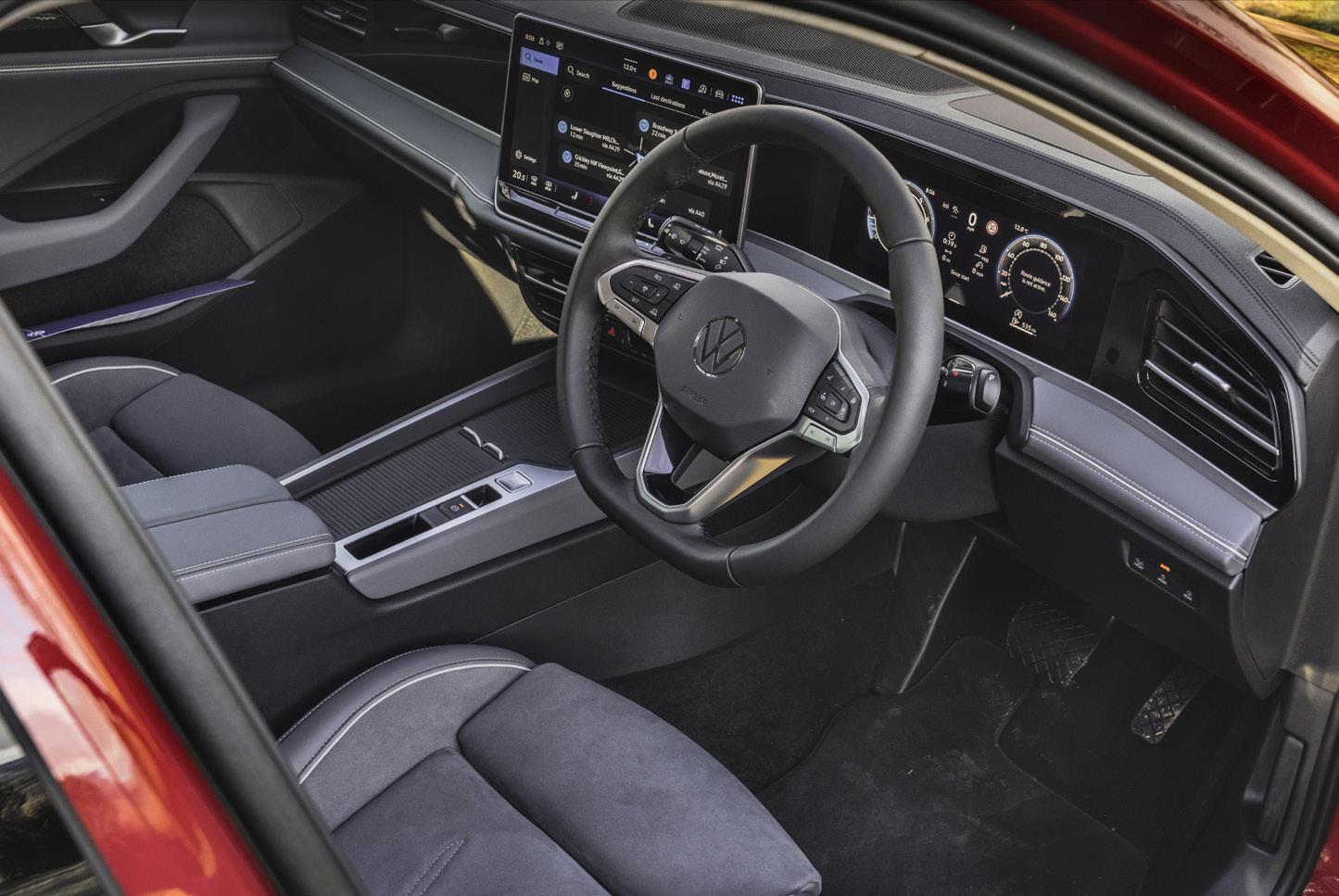
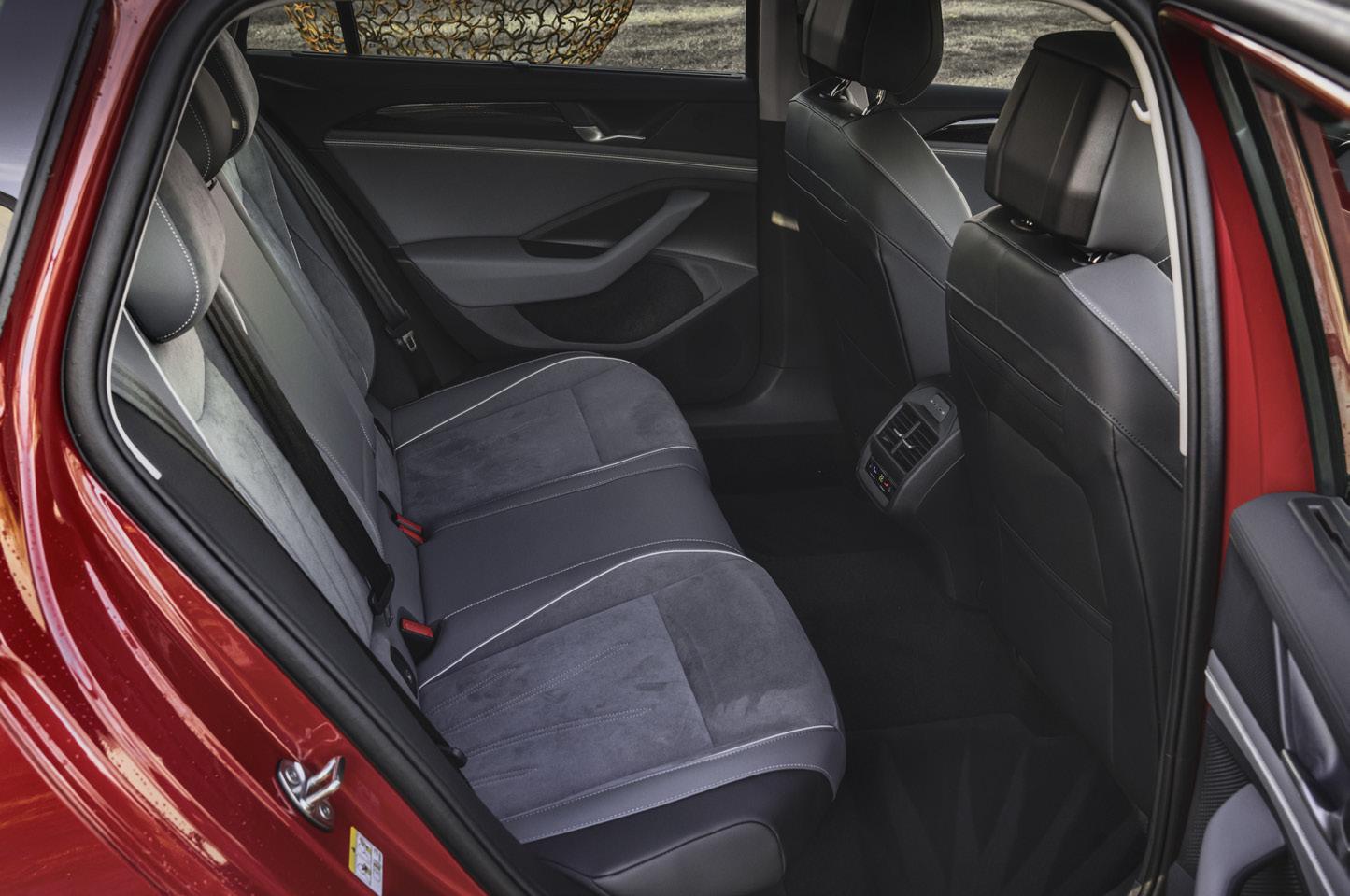
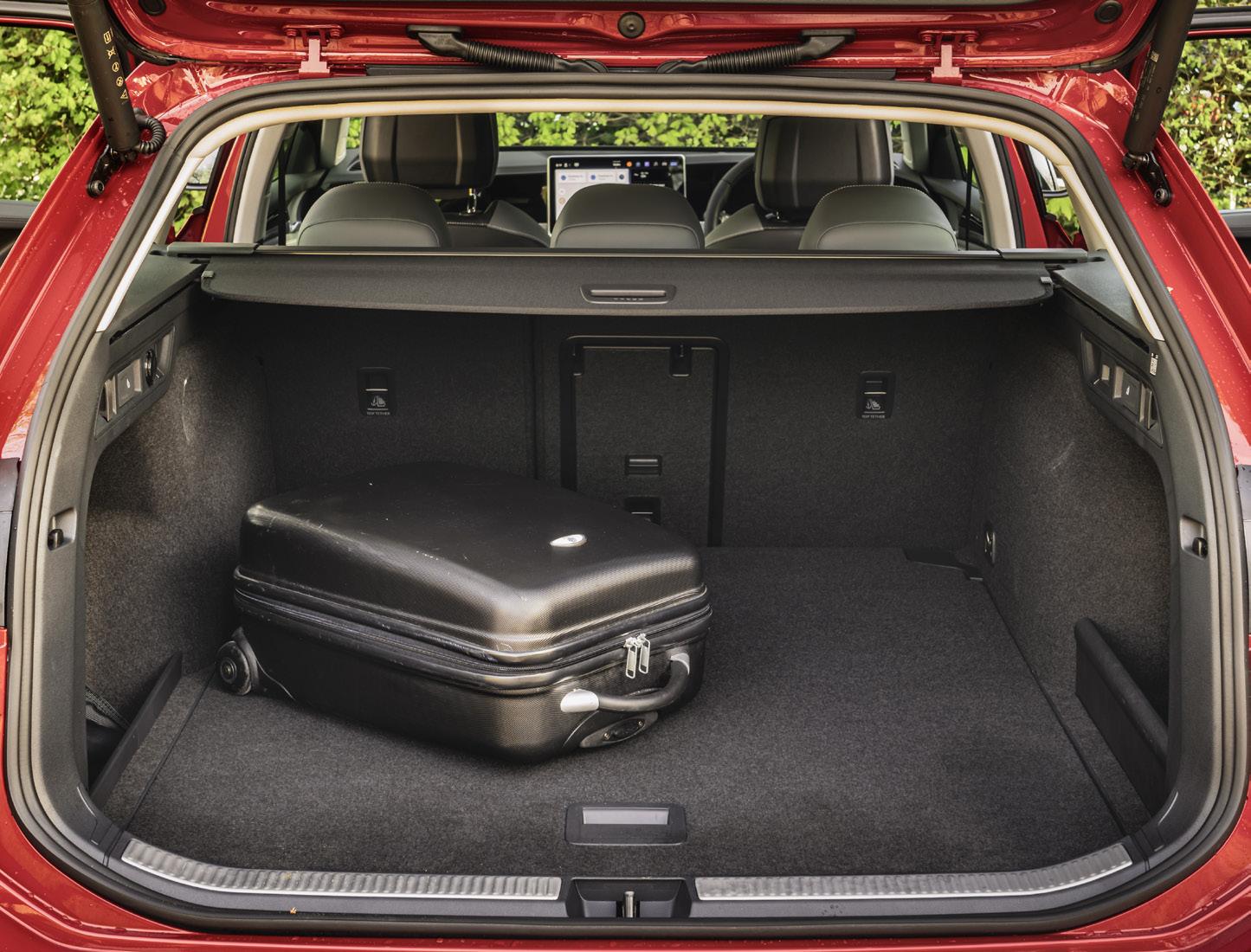

ProDriver
Transmission
Power 150PS
Torque 250Nm at 1,500-3,500rpm
Top speed 138mph
0-62mph 9.2sec
Fuel economy 50.0mpg (WLTP combined)
CO2 emissions 129g/km
Length 4,917mm
Width 1,849mm
Height 1,497mm
Wheelbase 2,841mm
Loadspace 690 litres
Turning circle 12.0m
Fuel
Warranty
Insurance
VED Band G
CONTINUED FROM PAGE 11
display can be upgraded to the Discover Pro Max, which has a 15in screen. The graphics, structure and menu navigation in both versions are identical.
Back-lit touch sliders for temperature and volume settings are located under the infotainment display. VW has moved the gear selector from the centre console to a steering column stalk, freeing up storage space in the central area.
The seats are extremely comfortable, though on the Life version only the seat back is electrically adjustable. Seat position and height are manual. Elegance and R-Line versions of the new Passat gain ergoActive front seats including lumbar support adjustment and pneumatic three-chamber massage in the seat backrests.
Optional top-line ergoActive Plus seats feature electric 14-way adjustment as well as a 10-chamber pressure point massage function in the backrest and an active air conditioning function (seat heating and ventilation). On the road, the Passat feels wide and substantial. New suspension includes electronic dynamics management including active damping, which controls the function of diff locks and shock absorbers to smooth out bumps.
It’s a reassuring drive – very smooth and stable, with good cornering performance and plenty of steering feel. But the Passat is not over-blessed with performance. It is, after all, only a 1.5 petrol engine, so acceleration is comfortable rather than brisk. There’s enough torque to cope with hills, though, and the PHEV versions will offer more grunt thanks to the added electric motor.


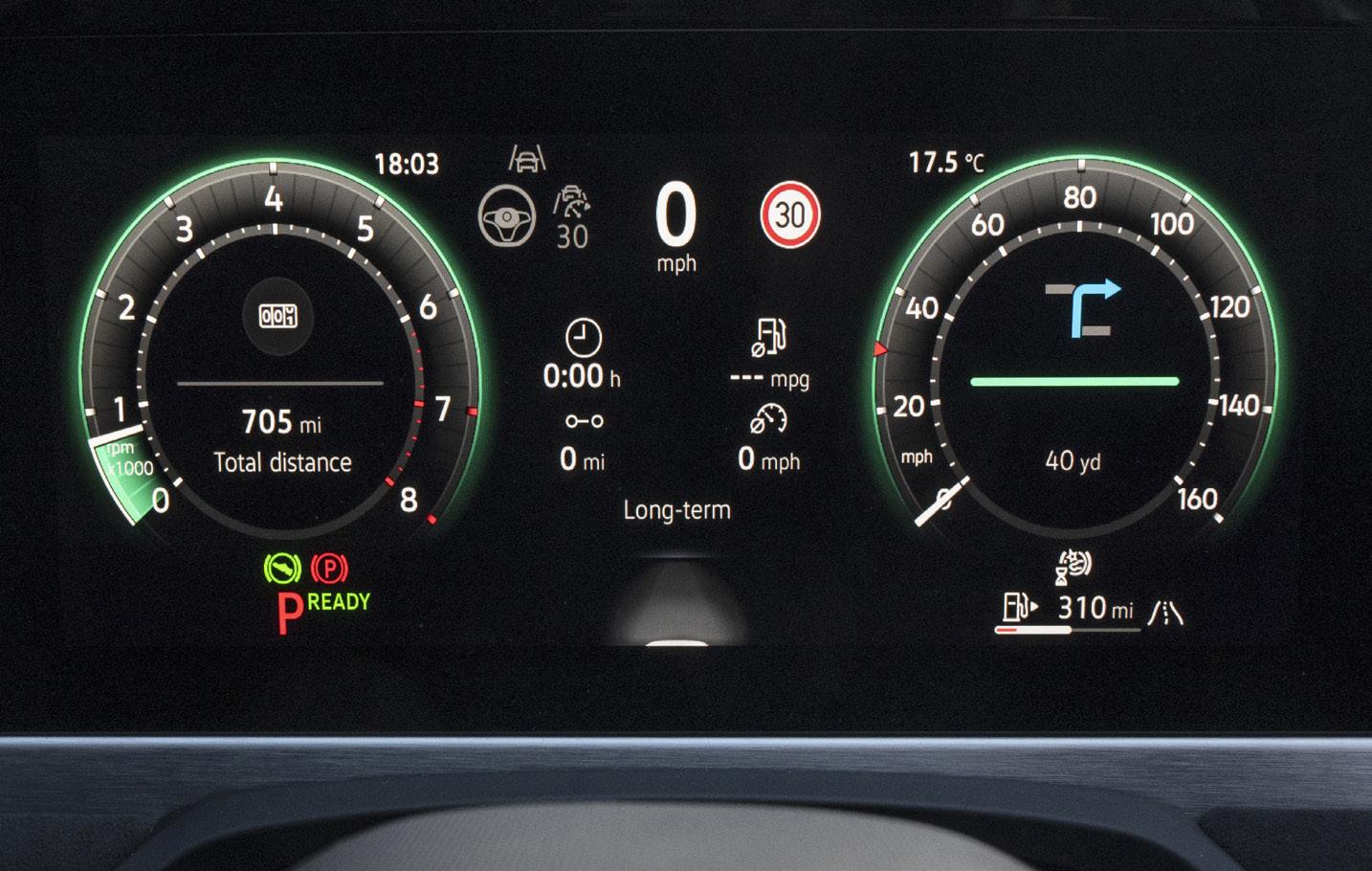
less than 30 minutes, the driver can stay productive.
With the EV transition hitting something of a wall, it’s reassuring to find very competent hybrids still being launched. As it stands, the initial mild hybrid versions of the new Passat cannot be registered as London PHVs, but elsewhere in the UK, they’re absolutely fine – and ideal for the task.
Later this year you’ll be able to buy PHEV variants that offer range comparable to a full EV of not so long ago. VW claims a 77-mile range from the Passat PHEV, which is similar to the range offered 10 years ago by a Nissan Leaf.
If TfL was sensible, it would allow such cars to be registered after its projected EV-only cut-off point of 2025, as a 77-mile EV range in central London equates to seven hours of driving at London’s average 11mph speeds. Airport runs could be switched to petrol on stretches of non-urban M11 or M23. And with a fast-charge facility of
Sadly, TfL is far from sensible, so if you want to PCO a Passat, get it ordered and delivered before the end of the year. Alternatively, the similar-sized (but unrelated under the skin ) ID.7 Tourer is also due this year, and it’ll be interesting to see how well that compares to the more traditional Passat.
With the latest version of Passat, VW has bolstered the vehicle’s size, so it’s as big as its close relative, the Skoda Superb. Fit and finish is of a high standard – much better than a Tesla and almost at Mercedes standard.
With the right trim and colour, the new Passat is of a standard to allow it to be used as an executive chauffeur car, with exceptional rear passenger space and plenty of luggage space.
It should be noted, though, that the PHEV will not offer quite the whopping 690 litres of the regular Passat, as under-boot electric gubbins will take up some space, resulting in a higher floor.

Following the success of the Lexus ES300h in Professional Driver’s Car of the Year Awards last year, where it scooped the Executive Car of the Year prize, we wanted to see for ourselves just how good this car is for the executive chauffeuring market.
We know our judges liked it, and we know that QSi Award-winning Scottish chauffeurs Little’s run the ES300h in their famous burgundy colours. We’ve also seen a few cars around the London airports. So is the rest of the industry missing something?
Even our esteemed editor was duly impressed as we went round the country visiting various operators who were suitably intrigued by the cars stature. People like Jason Ikpedjian of Belgraves, (pictured with the car), admitted they hadn’t necessarily considered adding this car to their fleets. but certainly agreed that the car’s quality wouldn’t be amiss for executive work.
So why is the ES300h not on more big UK fleets? It’s not a question of affordability. The new BMW i5 we tested last year weighed in at £89,000 on the road. It’s an impressive car -
but the starting price for the ES300h is less than half that, at around £40,000. Even the top-line Takumi version we tested here is only £56,365.
Even if there was a marked running cost advantage of going electric (and there isn’t if you have to use the charging networks rather than home charging), you’d have to do a hell of a lot of miles to make up the price differential. And range anxiety is not an issue. You don’t plug in the ES300h at all – it’s what Toyota calls a “self-charging hybrid”.
The elephant in the room for London chauffeurs is, of course, TfL’s refusal to license cars that are not “zero emissions capable”. This means it’s OK to license a PHEV, even if you never charge it up, but not a self-charging hybrid.
It’s nonsense, but you can find ways round it – there are other councils that will allow you to register the car, and under the Deregulation Act there is nothing to stop you from working in the capital without returning to base.
So, if you can register the ES300h in your area, book a test with your local dealer. Or come to our Car of the Year judging day. See page 34 for details.
We know our Car of the Year judges liked it, but is the rest of the industry missing something? “ ”
DATA
Price OTR £56,365
SPECIFICATION
Engine 2,487cc 4-cylinder petrol
Electric Motor AC synchronous
Transmission E-CVT auto, front-wheel drive
Battery 244V NiMH
System power 218bhp at 3,750rpm
Torque 221Nm at 3,600-5,200rpm
Top speed 112mph
0-62mph 8.9sec
Fuel economy 52.3-53.2mpg (WLTP combined) CO2 emissions 121g/km
Length 4,975mm
Width 1,865mm
Height 1,445mm
Wheelbase 2,870mm
Loadspace 454 litres
Turning circle 11.6m
Fuel tank 50 litres
Warranty 10 years/ 100,000 miles)
Insurance Group 31E-36E
VED Band G

Ethos Asset Finance are the experts in your industry for finance solutions.
We’re here to make the whole process seamless.
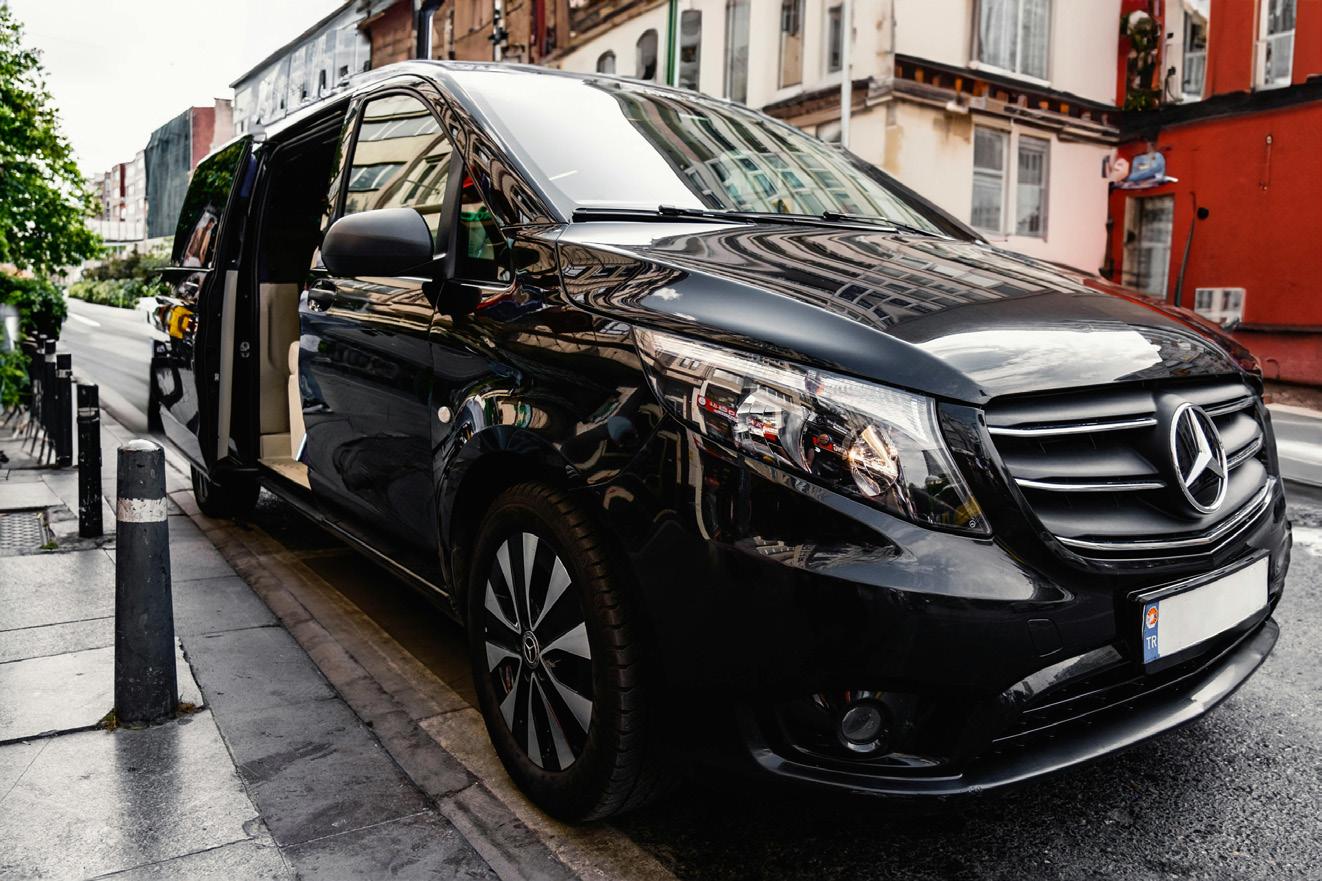
We provide funding and sourcing packages for the chauffeur and private hire network.
We have access to multiple panels of funders who also specialise in B2B vehicles finance
We make the process easy - as we do all the paperwork and sign ups.
We provide ongoing support to secure credit lines for fleets and operators/owner drivers.
We have access to competitive rates of interest.
Efficient payouts to support delivery and target needs.


Mark Bursa Mark Bursa

Mercedes-Benz is giving the electric EQS luxury saloon a bit more chauffeur appeal by introducing the option of the “gunsight” grille ornament and traditional grille rather than the sporty AMG-style central star. The new grille comes as standard on the Business Class Line trim level.
The low-slung EQS has struggled for sales against the more stately BMW i7 in the chauffeur sector, and the introduction of more chrome trim and a more up-market nose is part of a mid-life facelift designed address this.
As well as the new visual treatment, the top-line EQS 450+ model has received a substantial range upgrade,
giving it a claimed all-electric range of 510 miles on a single charge. This is more than 50 miles greater than the original EQS, thanks to an increased battery capacity from 108.4kWh to 118 kWh.
Inside the car rear-seat comfort has been enhanced with introduction of an extended rear luxury lounge pack, allowing the front passenger seat to fold forward, giving greater legroom for a rear seat passenger in the nearside seat.
The pack also adds a footrest and a rear seat back that can be adjusted The angle of the backrest can be adjusted from 27 to 38 degrees at the touch of a button. The seat backs contain more foam for added comfort.
Optional equipment also includes
seat heating, including neck and shoulder heating in the rear, as well as pneumatic adjustment of the seat depth.
The MBUX Hyperscreen full-width display is now standard on the EQS. The dashboard unit incorporates three digital displays which merge almost seamlessly into one, creating a screen strip that is more than 1.4m wide.
Further range increases come from improved braking recuperation.
Mercedes-Benz has also optimised the braking system to offer a better pedal feel.
The high proportion of recuperation in daily operation means brake discs are used less frequently than in ICE models, so a special function will maintain the brake system by automat-

ically applying the pads to the discs from time to time.
A heat pump is also standard. This increases climate comfort and efficiency by using waste heat from the electric drive and the high-voltage battery to heat the interior, which also and increases the range.
Mercedes plans to incorporate the improvements made on the EQS to its other luxury models, including EQE, EQS SUV and EQE SUV.
The revamped EQS is already available to order in Germany, with UK timings yet to be confirmed. Mercedes-Benz says pricing will not be increased. The current EQS starts at £112,610 for the EQS 450+ AMG Line Premium trim level. Pricing and launch dates will be confirmed later.



Electric luxury people-movers are a scarce commodity, as chauffeurs who have been waiting patiently for the new MercedesBenz EQV will attest. There’s a new Ford Tourneo Custom on the way, and that’ll have an electric version, as will the next-generation Volkswagen Caravelle, which will share a platform with the Ford.
It still doesn’t give chauffeurs a lot of options, so it’s good to see a new entrant to the sector – albeit a brand that is familiar with the hire-and-reward market.
LEVC, which makes the TX London black cab, has announced it is entering the MPV market with a large and luxurious seven-seater called the L380. The name references Airbus’s giant A380 “superjumbo” double-deck airliner, and LEVC even claims the nose profile of the L380 was inspired by the shape of the A380’s nose.
The L380 is the first fully electric LEVC model, based on a new platform that the company calls ‘Space Oriented Architecture’ (SOA). This will also form the basis for the next-generation black cab and van models, moving LEVC away from the series hybrid approach and into the full electric world.
LEVC has revealed the L380 in China, where its owner Geely is based, and the latest images reveal a spacious, flexible and comfortable interior. The L380 will be launched in China this year, though UK supplies could be some way off.
LEVC says global markets will be served “within two years”, though some of the company’s promo photographs clearly show right-hand drive models, suggesting the UK might be a priority market, especially given LEVC’s established position here as a taxi supplier. So we might get the L380 in 2025 rather than 2026.
The L380 is a big vehicle. It weighs 2.8 tonnes and is 5,316mm long with a 6- or 8-seat layout. It’s 1,998mm wide and 1,940mm tall, and the 3,185mm wheelbase has a long rear overhang, meaning a 6-seater version would offer good luggage space. The 6 seats are individual captain’s chairs, and the second row can be reversed to offer conference seating. The 8-seater is unlikely to be sold in Europe as it features four rows of two seats.
The L380 will be manufactured alongside the TX taxis in Zhejiang at the LEVC New Energy Automobile Co plant, but it has been designed largely in the UK by LEVC’s global chief design officer Brett Boydell and his team, based at LEVC’s Design & Innovation Centre in Ansty, near Coventry.
Design details include a ‘floating’ dashboard and a 2.18sq m panoramic glass roof, which can dim automatically to limit direct sunlight on hot days. Initially four body colours are offered: white, black, sapphire blue and emerald green.
Boydell said: “The L380 MPV, the first of a new wave of pure electric LEVC products based on our SOA platform, truly breaks new ground, inspired by sectors such as luxury air travel and our international cultures.”
Alex Nan, CEO of LEVC, added: “The innovative SOA technology on which L380 sits spearheads our exciting new strategy. We aim to have a presence in over 40 countries in the coming years, with multiple new models based on the SOA platform leading the way.”





The VAT Consultation on the treatment of Private Hire has been issued. It is an interesting and, in many ways, well thought through document with a range of fairly open questions and invitations to think more broadly. There is no silver bullet set out in the consultation document, and each idea that is explored has upsides and downsides.
However, we are for once being asked what we think and how we would solve the issue and what the impacts would be on our businesses, our customers, our drivers and ultimately our industry.
My strongest recommendation is that every taxi and PH company in the country at least reads the document, ideally as many as possible should think through what would work best for their business and where possible submit a response. The document rightly draws attention to the differences in size of businesses, the type of work that companies fulfil, and the different arrangements for drivers.
This industry has been buffeted around for too long. Apathy has allowed others to make the decisions. This is our moment to show that we are a responsible group of professionals who know what we need for our businesses to thrive and prosper.
The alternative – more apathy –would be an appalling missed opportunity and could, if the wrong decisions are imposed, damage many people’s businesses and consequently financial futures for years to come. The damage to vulnerable passengers could be incalculable.
A 20% VAT rate on all fares would without any doubt reduce the amount of business most private hire companies undertake. The mantra that if it effects the whole industry, it will be OK won’t work this time around. If there was a 20% fare increase opportunity out there, surely most
 Dr Michael Galvin
Dr Michael Galvin
PH companies would have already implemented it.
It is staggering that one of the representative PH organisations is supportive of a 20% VAT rate. We all have many customers who are just about getting by, who don’t have a car and rely on cabs, but a 20% hike will blow them out of the water. How big that group is may be difficult to say, but who wants to take the risk?
One part of the consultation appears to leave a gaping hole that the industry needs to address. The impact of increased fares due to VAT and the lack of transport in rural areas contained some interesting solutions. Yes, they are only suggestions to get respondents to think more broadly, but the lack of taxis/PH was stark.
Demand-responsive transport, community transport and so on were all considered, but subsidising taxis/ PH was not. The London Taxicard Scheme is a model of how to assist older and disabled people to travel.
The councils, through London Councils, pay the bulk of the fare while the passenger makes a small contribution. This provides a valuable source of business to the industry enabling investment in accessible vehicles and technology. If it works there, surely it is worth piloting elsewhere?
I was recently on a panel discussing whether taxi/PH could be the solution to accessible transport in rural areas. I was very clear: yes…but! Yes, taxi/ PH could be the ideal flexible and accessible supply, but without subsidy it won’t happen. If some form of VAT:
5% or whatever is the final decision (I don’t feel it should be), then redirecting some of this money back into the industry to support vulnerable users in transport deserts doesn’t seem a bad use of the money.
I realise that the above statement is no longer popular. In today’s culture of impatient, often rushed and poorly thought-through decisions everything must change and quick. But maybe the consultation provides the industry and the government time to take a breath and look back prior to the two High Court cases (London and Sefton) and reflect on the system that has worked well for years.
VAT on account work was fair enough, VAT on driver fees/commissions fair enough, B2C work no VAT. This appeared to work well for all sizes of companies. It certainly didn’t feel like it was “broke”.
The consultation rightly raises concerns about drivers registering for VAT and reclaiming VAT on purchases but not on fares. The complexity of margin schemes, although these could be technologized, may be a step too far for smaller operators. Requiring operators to be the principal in respect of journeys but not for tax seems an attractive approach and brings us broadly back to where we were.
I would strongly urge every taxi/PH company to take the time to read the consultation and, if possible, respond. The questions are set in such a way that you can respond to just the bits you feel comfortable with or provide a comprehensive response.
If you have ideas that are not listed throw them in. Let’s not allow the shadow of the recent court cases to blight our industry, damage businesses, imprison vulnerable users for years to come through industry apathy. We are better than that!

Gary Jacobs Eazitax Ltd
gary@eazitax.co.uk
My last article covered the results of the digital platform legislation, an effort by the European Union to modernise and regulate the digital ecosystem.This initiative, which includes the Digital Services Act (DSA) and the Digital Markets Act (DMA), is designed to address issues ranging from market dominance to user safety.
The model rules require digital platforms to collect information on the income realised by those offering accommodation, transport and personal services through platforms and to report the information to tax authorities.
Additionally, recent guidelines from HMRC have supplied a more specific interpretation of these laws, clarifying their implications for different sectors in particular, including private hire companies.
This article explores the substance of these regulations and evaluates their potential impact on the private hire industry. The European digital platform legislation primarily consists of two components:
While targeting major tech platforms, the effects are likely to filter down to sectors such as private hire
The DSA is focused on improving transparency, tackling illegal content online, and safeguarding user rights.It imposes strict obligations on digital platforms to swiftly remove illegal content and to show how services, including advertisements, are moderated.
The DMA targets “gatekeepers”, defined as large platforms that play a pivotal role in the market. It aims to prevent these gatekeepers from abusing their positions by ensuring they do not block competitors and by promoting fair competition.
Recently, HMRC provided a definition and interpretation of how these European regulations will apply within the UK context, emphasising their application to digital service platforms, which could include apps and websites used by private hire companies for booking and managing rides.
This definition helps clarify the responsibilities and expectations for private hire platforms operating within the EU and the UK,
despite Brexit. The introduction of this legislation could have several direct and indirect implications for private hire companies.
Compliance and enforcement: Private hire companies that operate digital platforms or use third-party platforms to buy customers might find themselves needing to adhere to stricter compliance measures under the DSA. This includes ensuring that their platforms do not host illegal content and that user data is handled transparently.
Market competition: The DMA’s focus on preventing anti-competitive practices could benefit smaller private hire companies by ensuring they have fair access to the market. This could prevent larger platforms from prioritizing certain providers over others, leading to a more level playing field.
Operational costs: Adjusting business practices to align with new regulations might incur added operational costs. For example, implementing systems to comply with transparency requirements or changing platform algorithms could require significant investment.
Technological investment: There might be a need for technological upgrades or the development of proprietary software to reduce dependency on dominant third-party platforms, which could initially be costly but beneficial in the long term.
So when do I sign up, you might ask. The new European digital platform legislation, complemented by HMRC’s recent clarifications, marks a significant shift towards greater regulation of digital marketplaces. While primarily targeting major tech platforms, the effects are likely to filter down to smaller sectors, including private hire companies.
Which means it’s coming for the big gatekeepers, but not you guys yet. You will now have to navigate both the opportunities and challenges presented by this legislation. By fostering a fairer market and enhancing user protection, the legislation may indeed lead to a healthier competitive environment, albeit with increased compliance burdens. For private hire companies, staying informed and taking the initiative in adapting to these changes will be crucial.
And then there is the impact on the drivers, which I will be talking more in next month’s Professional Driver Advisor column.
We are all on them. In fact, I’d wager you are on at least three. WhatsApp groups have become part of our lives. They represent validation from our peers that we are worthy enough to be either invited or, at the very least, have had our request to join granted from this most intimate of social networks.
V Class Group, S Class Group, Taxi Group, North London Taxi Group, North London Barnet FC Forever Taxi Group… the list goes on and on, as do the ‘pings’. OK, I made the last one up, but you get the picture,
Recently I worked with a large production company which was shooting fashion commercials with beautiful Lake District as a backdrop for its sultry, ultra-thin mannequins.
As a professional driver, I consider the car to be like Las Vegas: what happens in the car stays in the car, like the aroma of last night’s kebab. So I shall protect the identity of my paymaster generals and call the fashion brand DickieDort – said in a Geordie accent (all rights reserved).
No sooner had I agreed to work on the job when I was added to the DickieDort Production WhatsApp group. Fine, reasonable. Then I was added to DickieDort Transport Group because DickieDort Production shouldn’t have to be bothered by the logistics side of the shoot.
Cue DickieDort Drivers group, which allows the lead guy to communicate with his drivers directly without having to bother ‘transport’ so they, in turn, don’t piss off ‘production’ with the frivolous antics of the least important cog in the wheel.
Football-related filth
Finally my phone adds me to the Lake District Sheep Shaggers Club which is the drivers themselves creating an outlet to share racist, misogynist and football-related filth while working together.
To further compound the carnage the icon pictures used consist of a variation of the original WhatsApp group theme which means most messages posted read ‘wrong group mate’ and/ or ‘this message was deleted’ until the inevitable ‘can we have a private word in the office please?’ lands.
My main issue with WhatsApp
 Kevin Willis Chirton Grange contact@chirtongrange.co.uk
Kevin Willis Chirton Grange contact@chirtongrange.co.uk
is reserved for the more permanent groups. These groups have the potential to contain 1,024 people, and most assume, because the title of the group fits a shared occupation, that they are among like-minded people.
The initial idea of these e-gatherings is a good one: share work, help each other out when needed and keep us up to date with legislation. But you’d be lucky if 20% of messages posted fit this bill as the rest churn out reams of Sadiq Khan memes, crashes by Uber drivers and football taunts.
During the recent London Mayoral election, Sadiq Khan was pilloried unmercifully on these platforms with ‘Get Him Out’ and ‘Time to Go’ being the more acceptable messages this publication will allow me to print. Personally, (these are my views and not necessarily those of this publication) I cannot abide the Mayor of London. Not for the colour of his skin or chosen religion but because I find him and his team destructive, incompetent and morally corrupt. (The wretched Tory candidate wasn’t much of an alternative – Ed).
However, WhatsApp groups all over believe it is totally acceptable to bombard me, and others, with vile images and fake news just because we have the same job. Baffling!
So why don’t I just leave the group(s) then? Firstly, because they have been very useful for finding me a driver at the last minute; they can also give useful information in the way of live traffic updates and speed cameras and, also, you never want to be the guy who ‘left the group’ because you were offended by a comment.
Although the few times I have hit the ‘Exit Group’ button I have been blessed with the overwhelming emotion of principled warrior and
protector of the vulnerable. Until later realising no one cared or noticed that I had stormed out.
In this modern era, communication is key. Gone are the excuses of yesteryear when people could ‘miss a call’ or ‘didn’t receive your email’ as reason for any subsequent miscommunication. Now the appearance of a double blue tick signs us into a binding contract of complicity. You got the message, pal and they know what time you read it!
Clients around the globe demand a quick response to their request for an airport transfer which puts us all on call 24/7 to provide a service. We have in our pockets or car cradle a necessary evil and there is no escape unless we use the mute button.
Much like the internet itself, WhatsApp holds many good attributes but also a lot of bad ones and, as I teach my granddaughters, I hold firm to the belief that you should never say anything online you would not say to someone’s face.
I can hear them now: ‘If I got hold of that Khan I would tear him a new one’ And I dare say some would. But others? Well, one bloke posted a message from his holiday to say he hadn’t bothered to send in his postal vote, and two drivers said they hadn’t voted because ‘what difference is it going to make?’ Isn’t this the whole point of the democratic vote?
There then followed one of those annoying ‘Get Khan Out’ petitions posted to the group. Why petition when you could have just cast your vote? Luckily for the many WhatsApp groups I belong to, words fail me.
As it turned out the WiFi and 5G coverage in the Lake District is practically non-existent so, following a few early scares, messages proved pointless. Most days and nights we had only the local Herdwick sheep to keep us company, the weather was cold and wet, we were far from home and had to make our own entertainment… What happens on tour stays on tour.
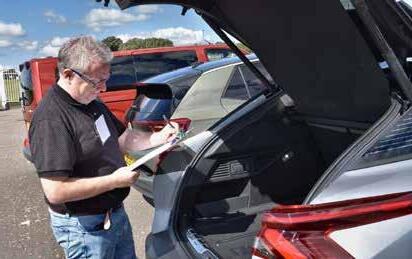


Tuesday, August 20, 2024 Epsom Racecourse, Epsom Downs, Surrey
Join us this Summer four your opportunity to test and evaluate the latest cars for the taxi, private hire and chauffeur industr y.
As a Professional Driver Car of the Year judge, you’ll be able to drive around 50 cars – and score them
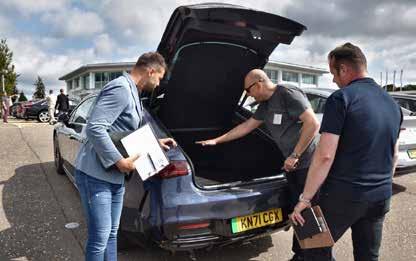
on 17 points that encompass everything from looks to comfort, driveability, passenger space and even the boot.
Your scores are used to help us choose our six category winners – and we present the awards at our legendary Professional Driver QSi Awards event later in the year.
Why not reward your best drivers with a day out too? Their expertise and knowledge will be very valuable! Click the link below to become a judge or you can also send an email to editor@prodrivermags.com and we’ll make sure you’re on the list.
To register: https://www.prodrivermags.com/car-of-the-year-home/